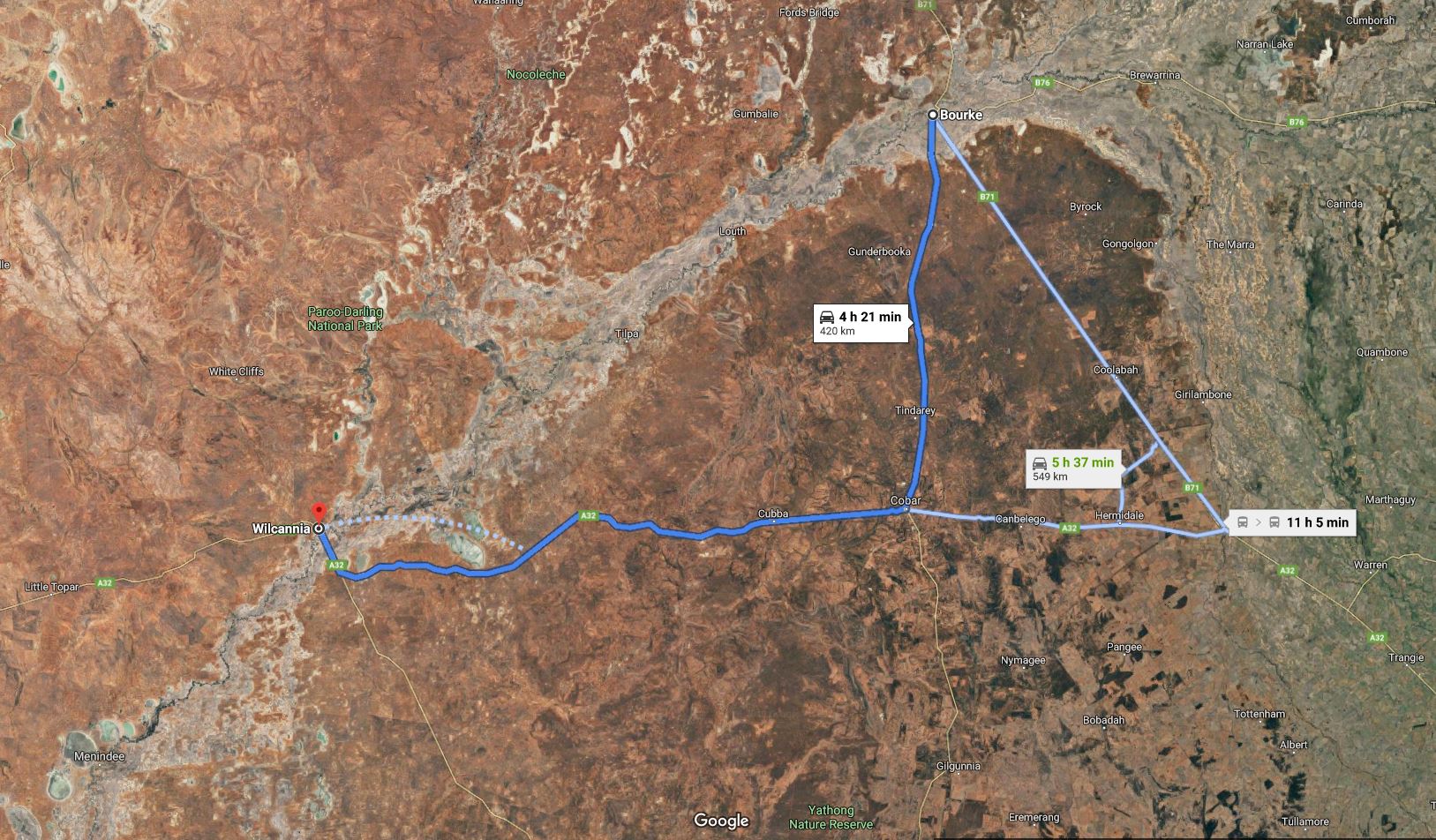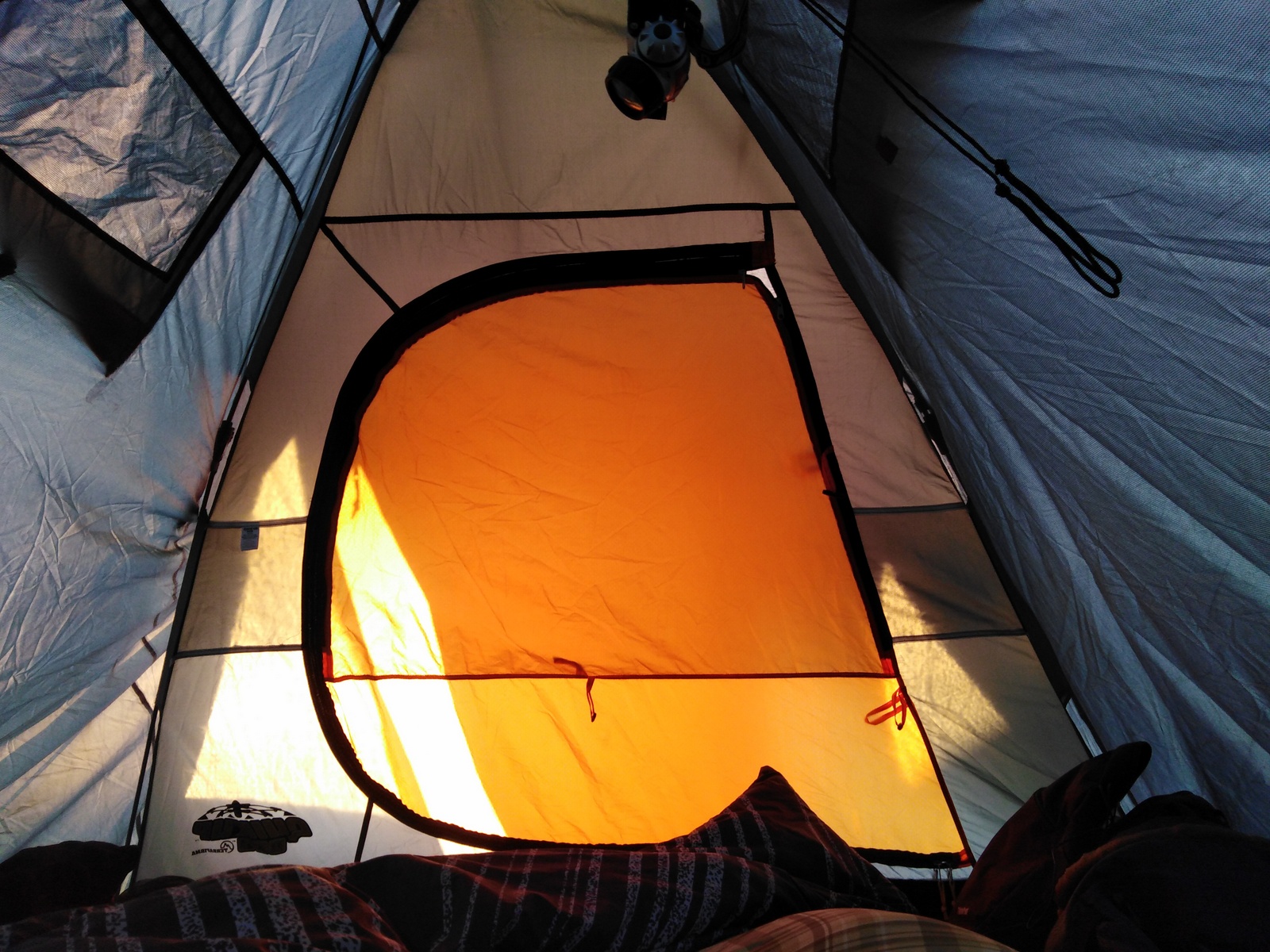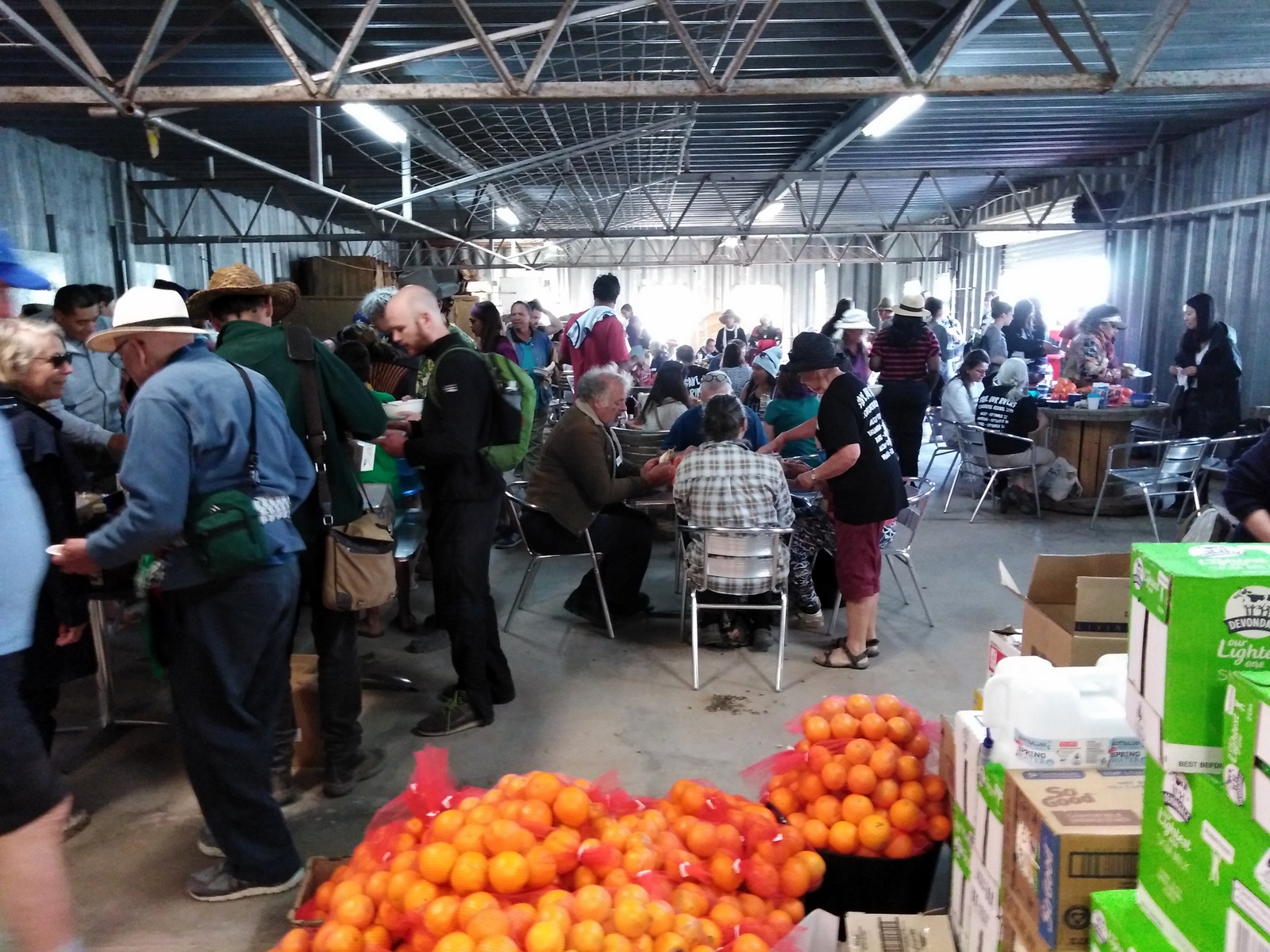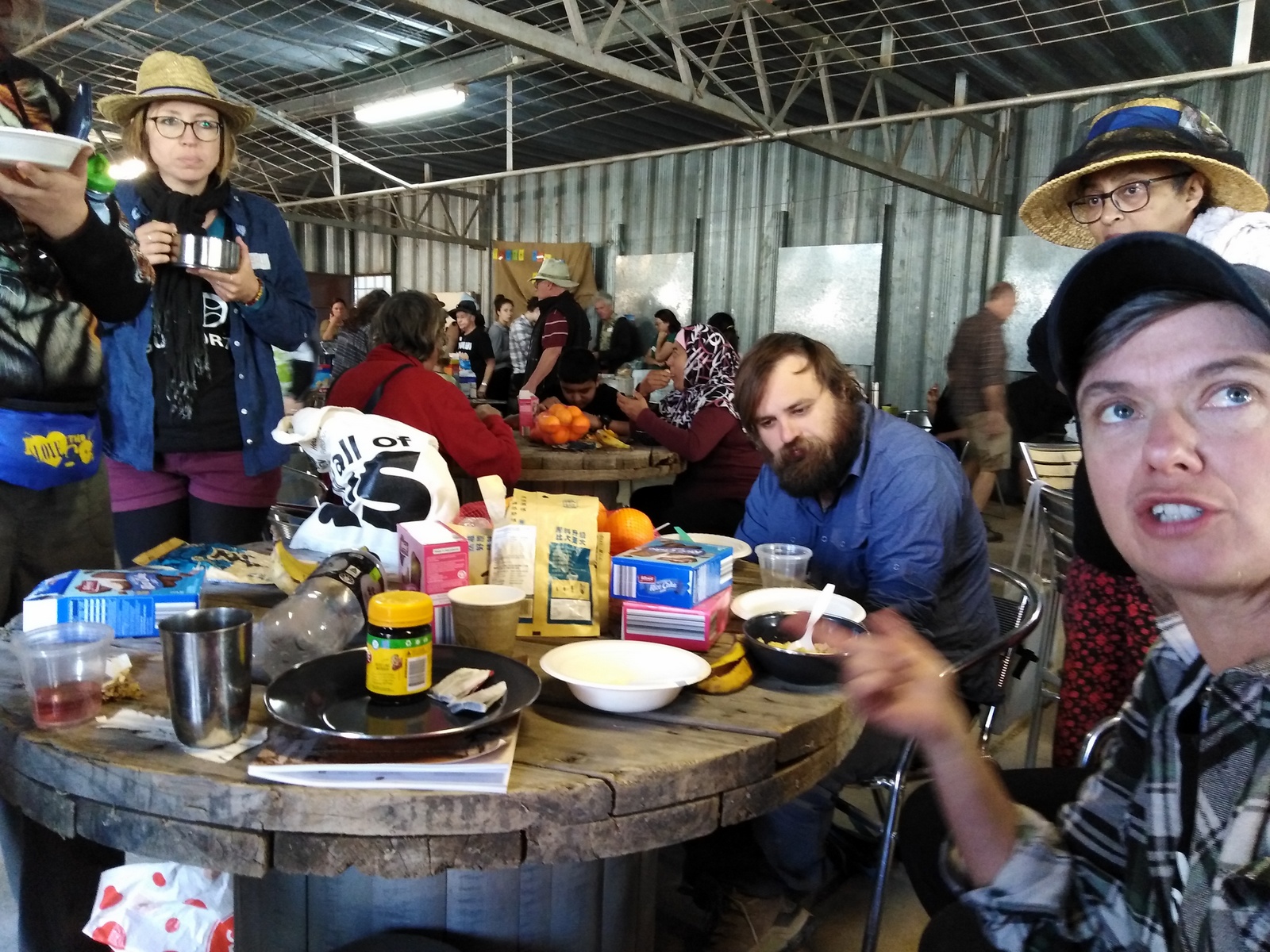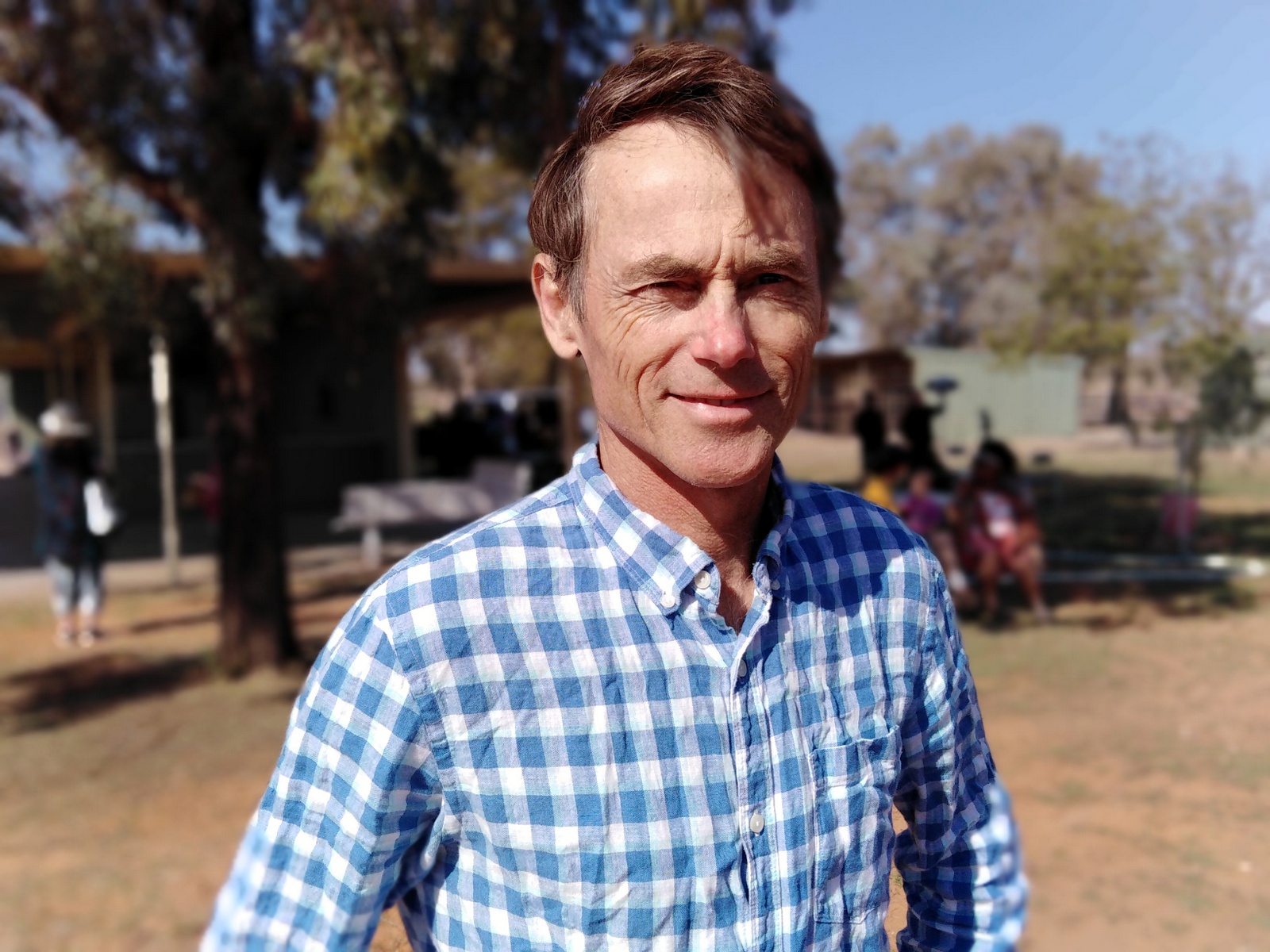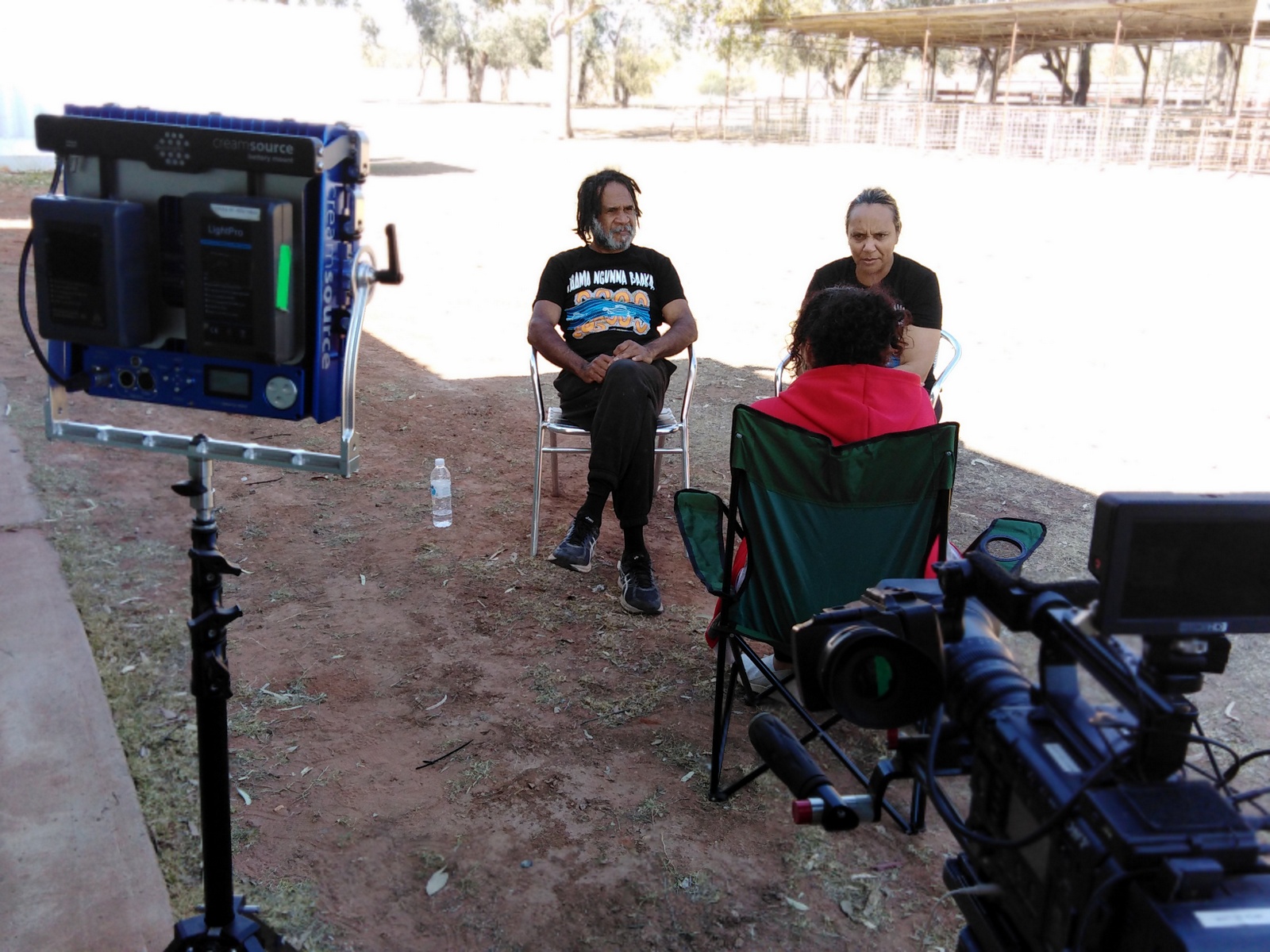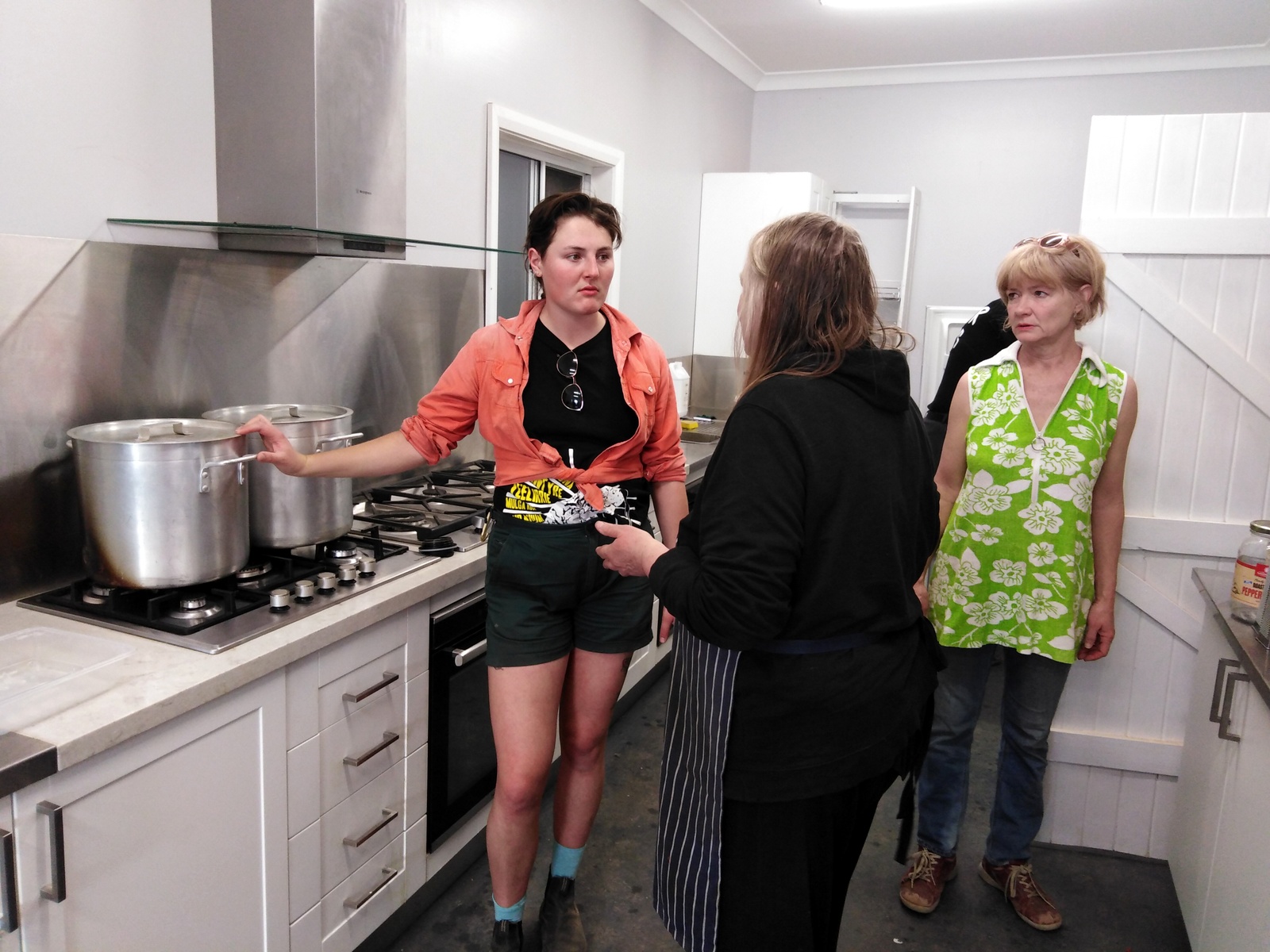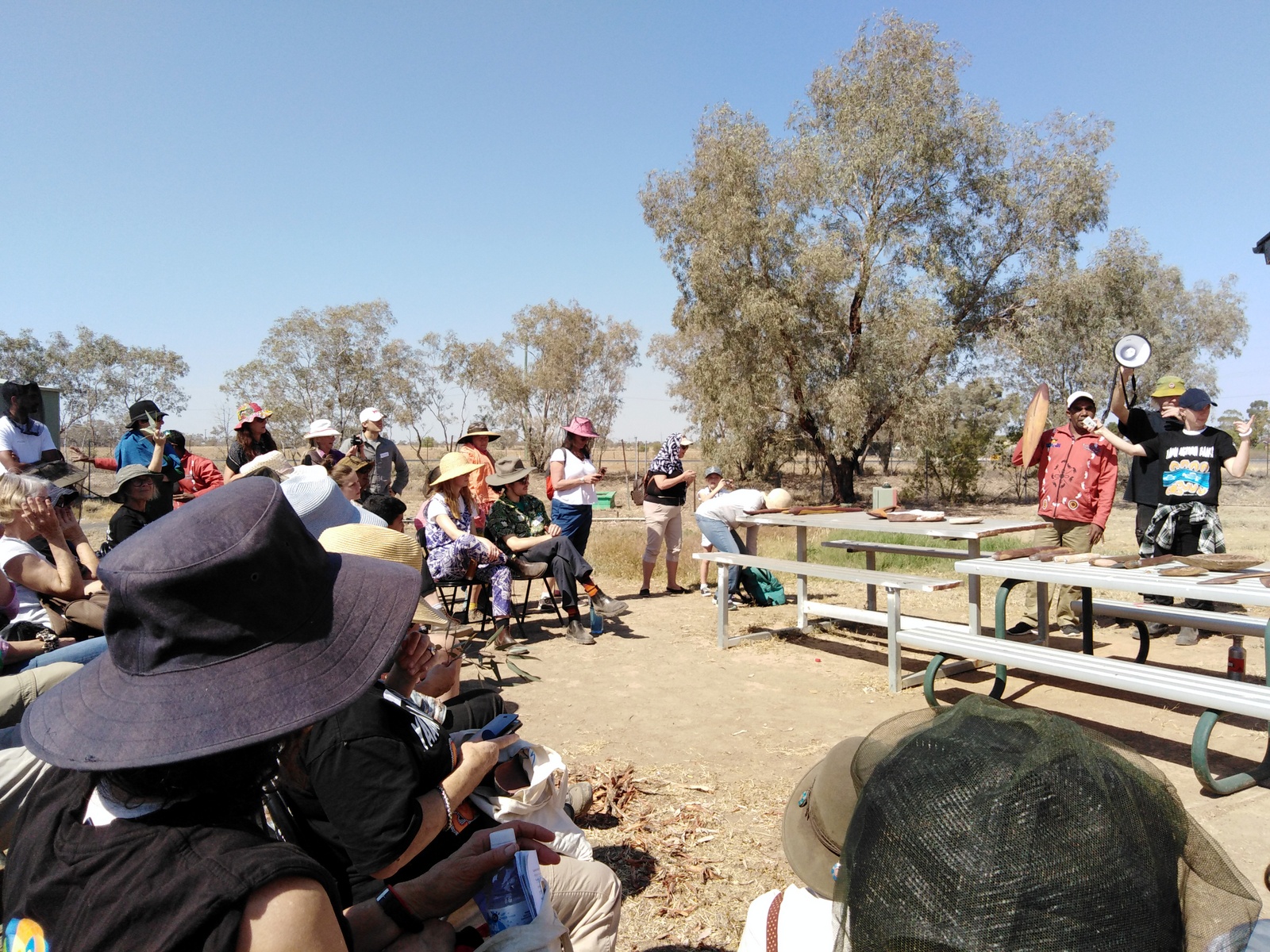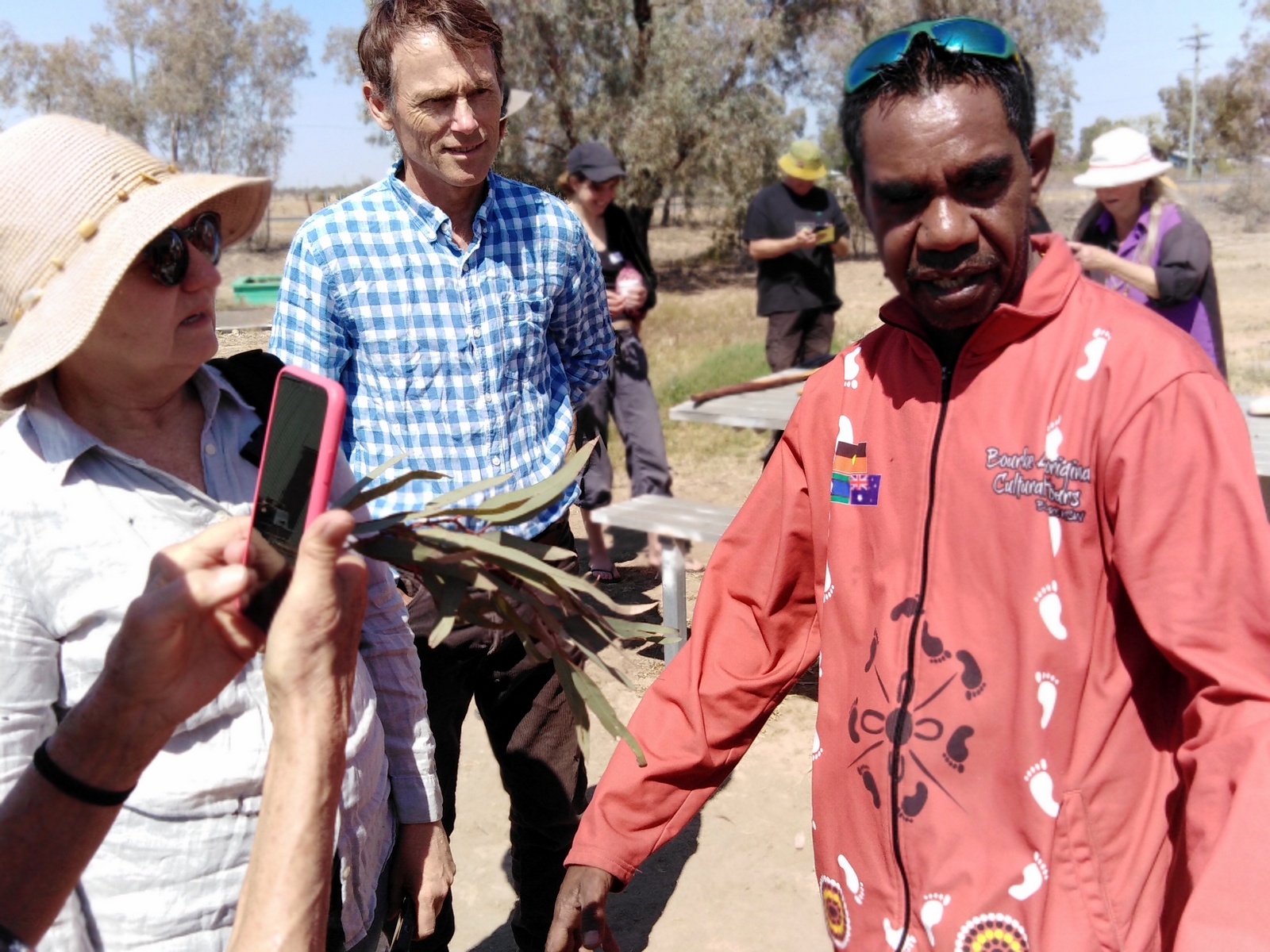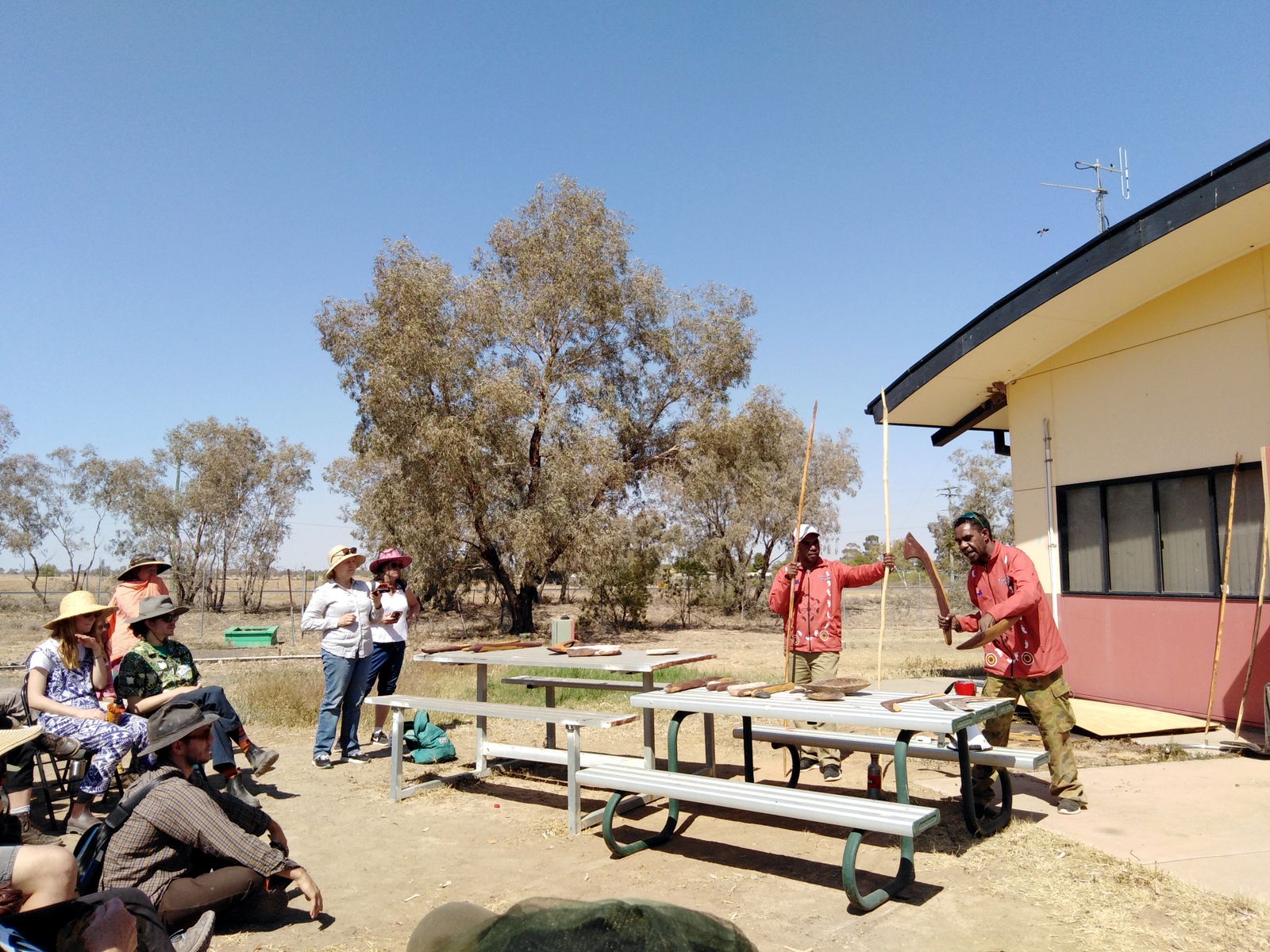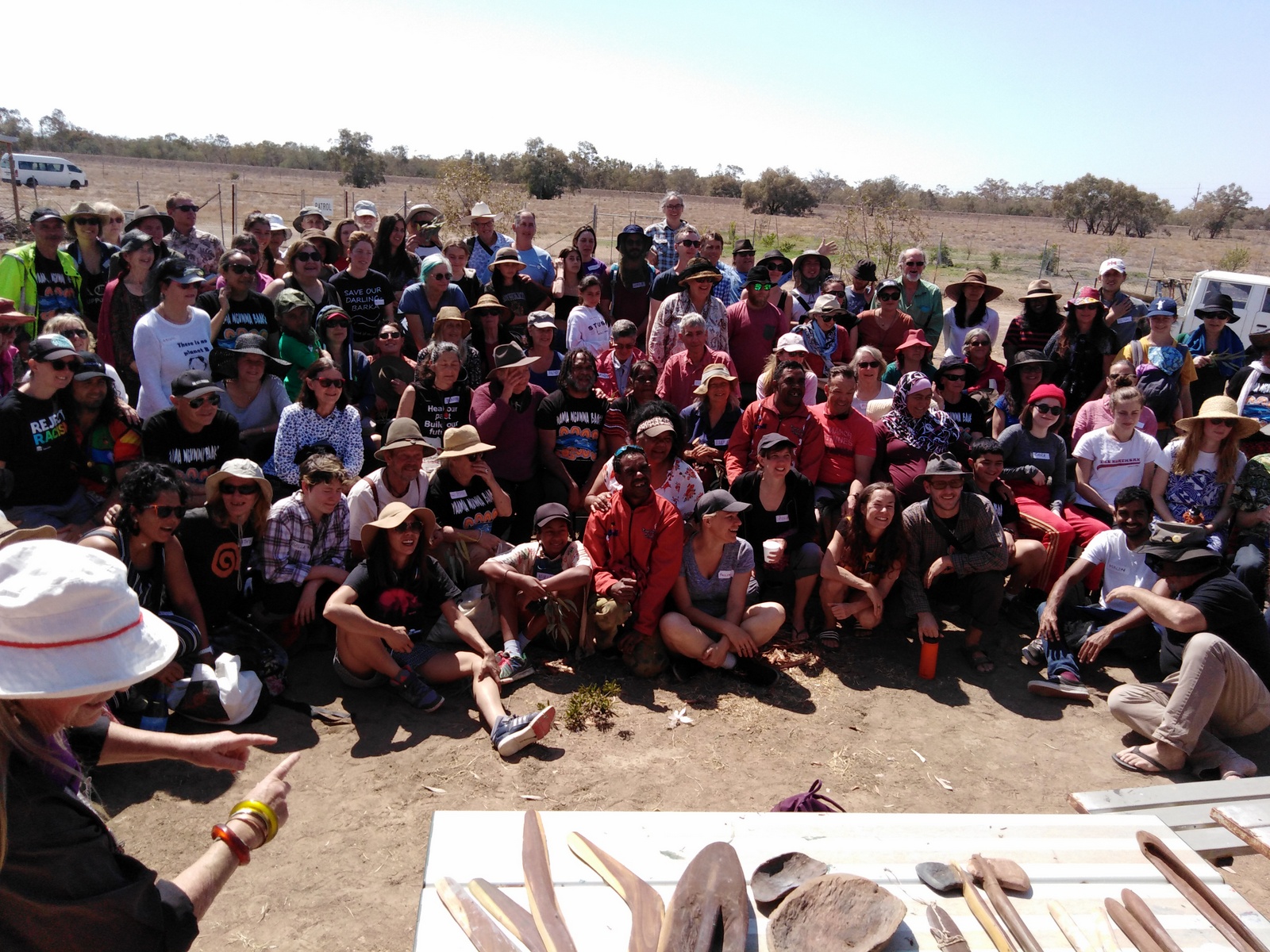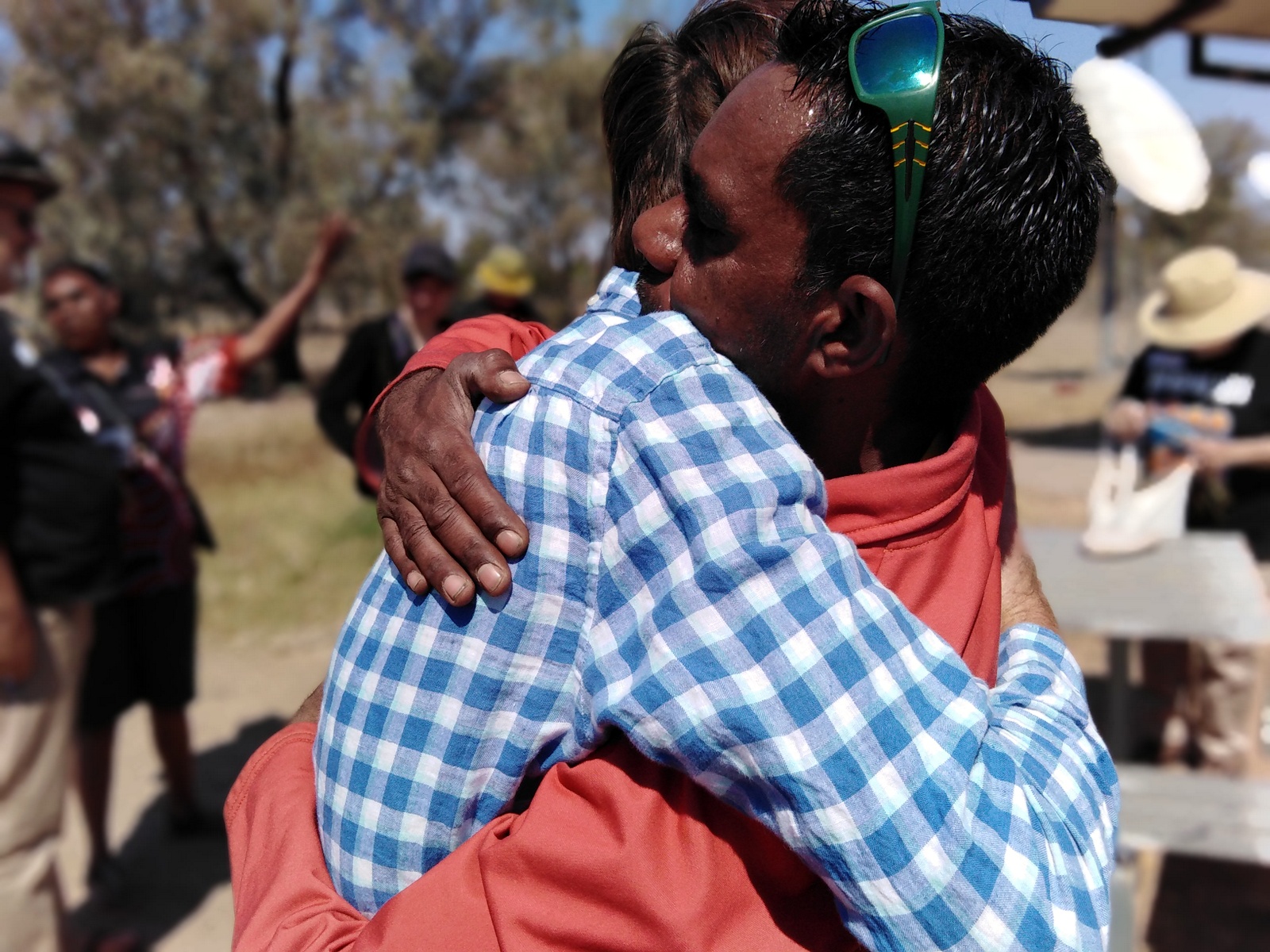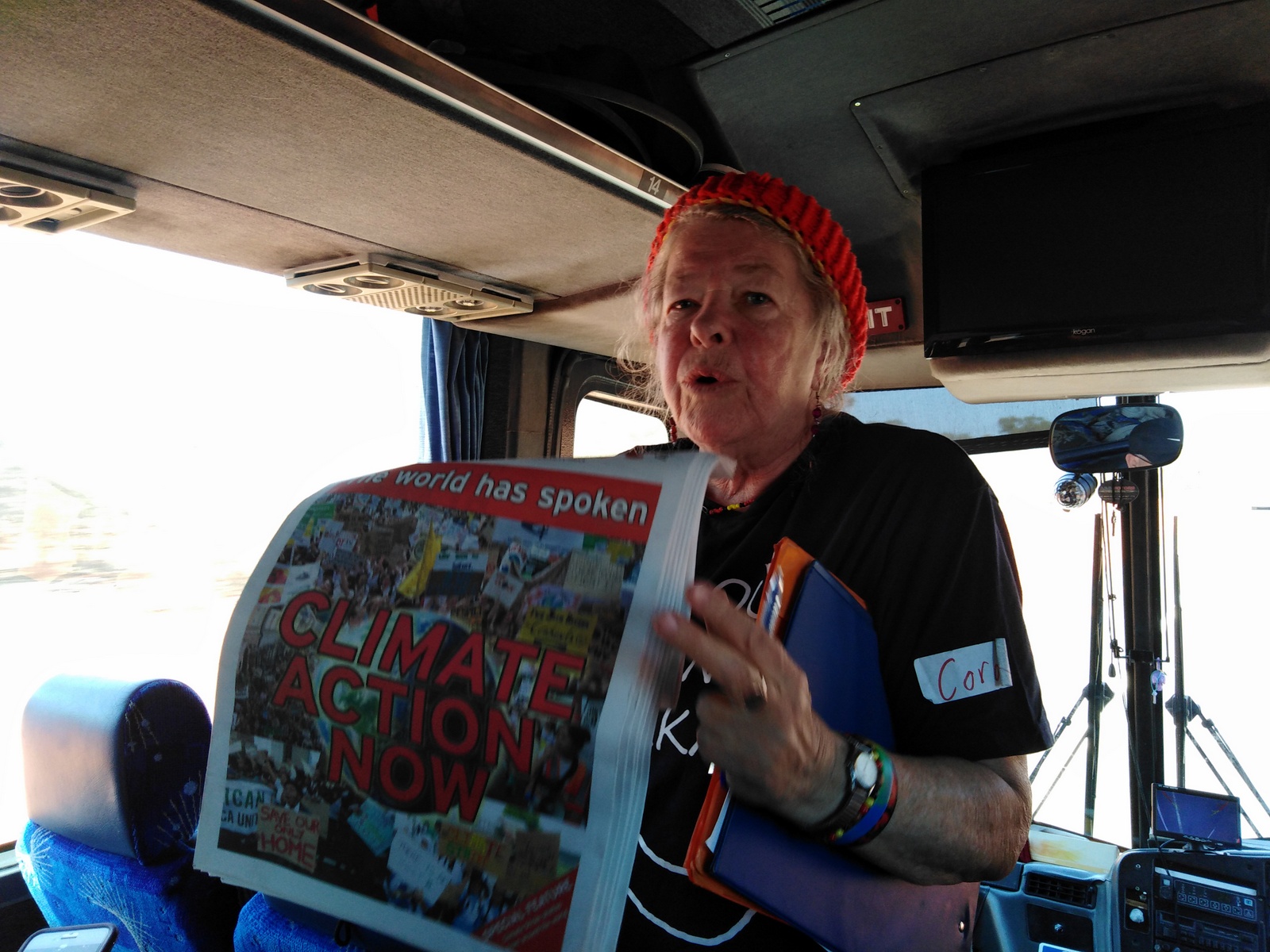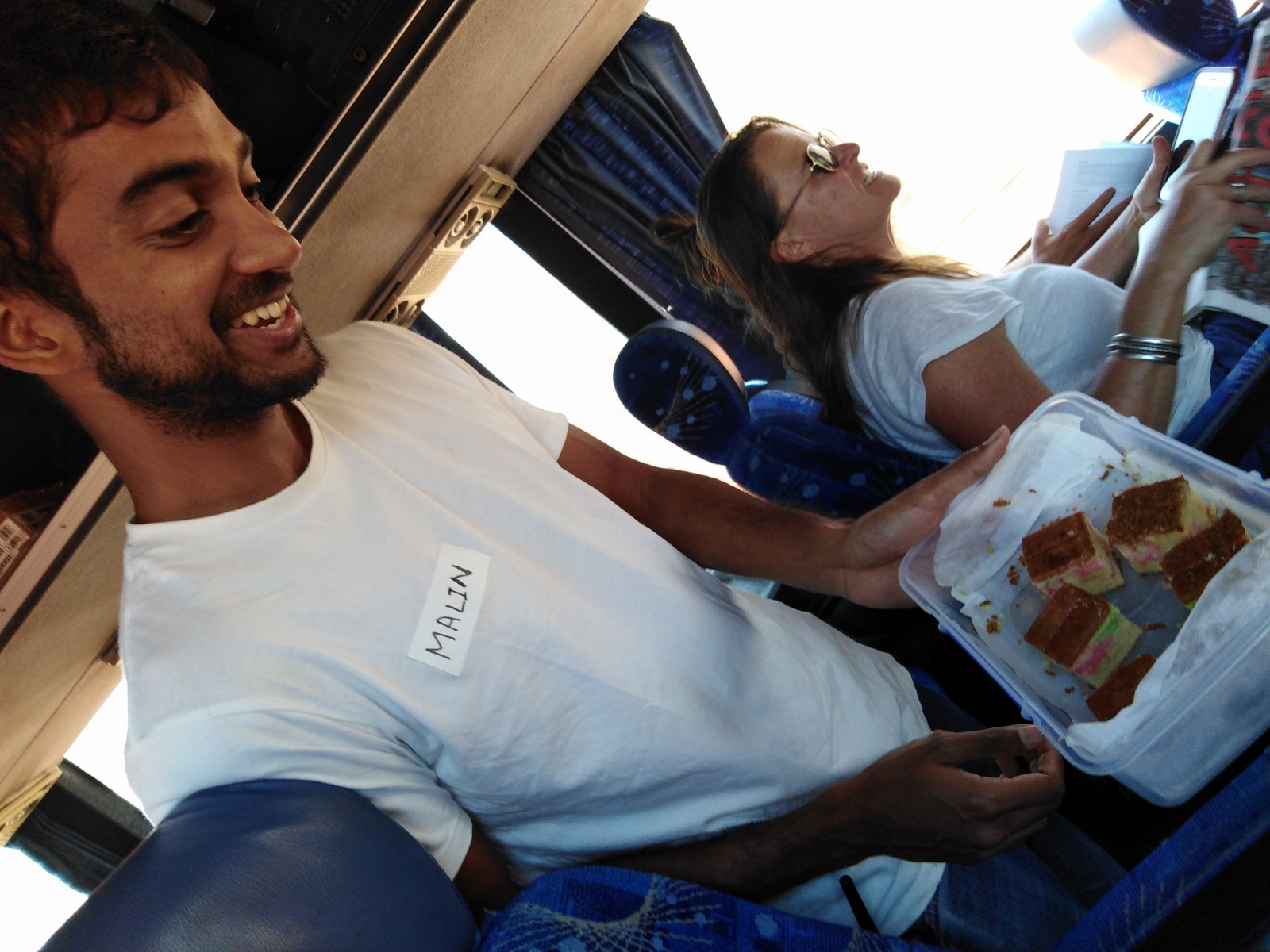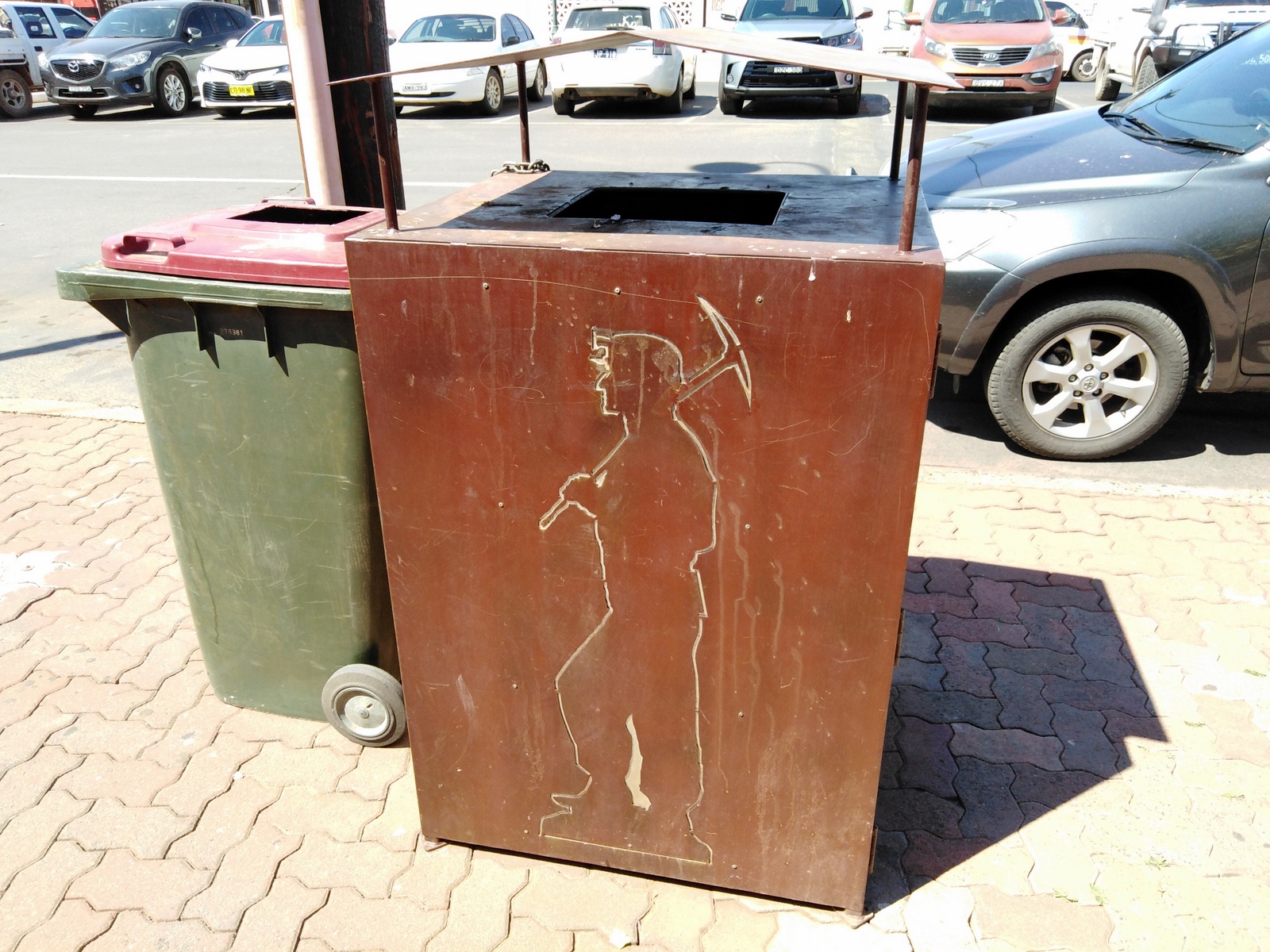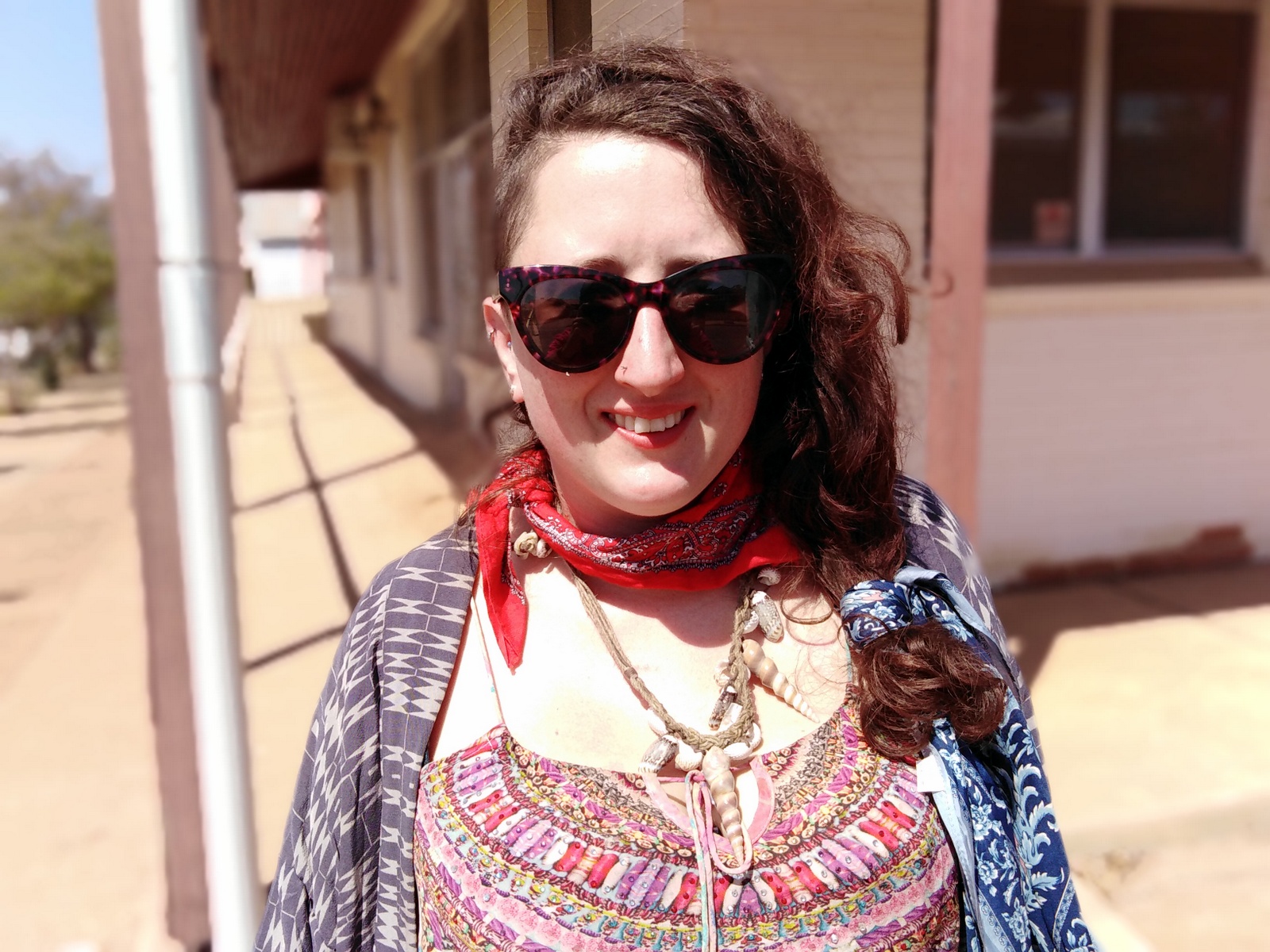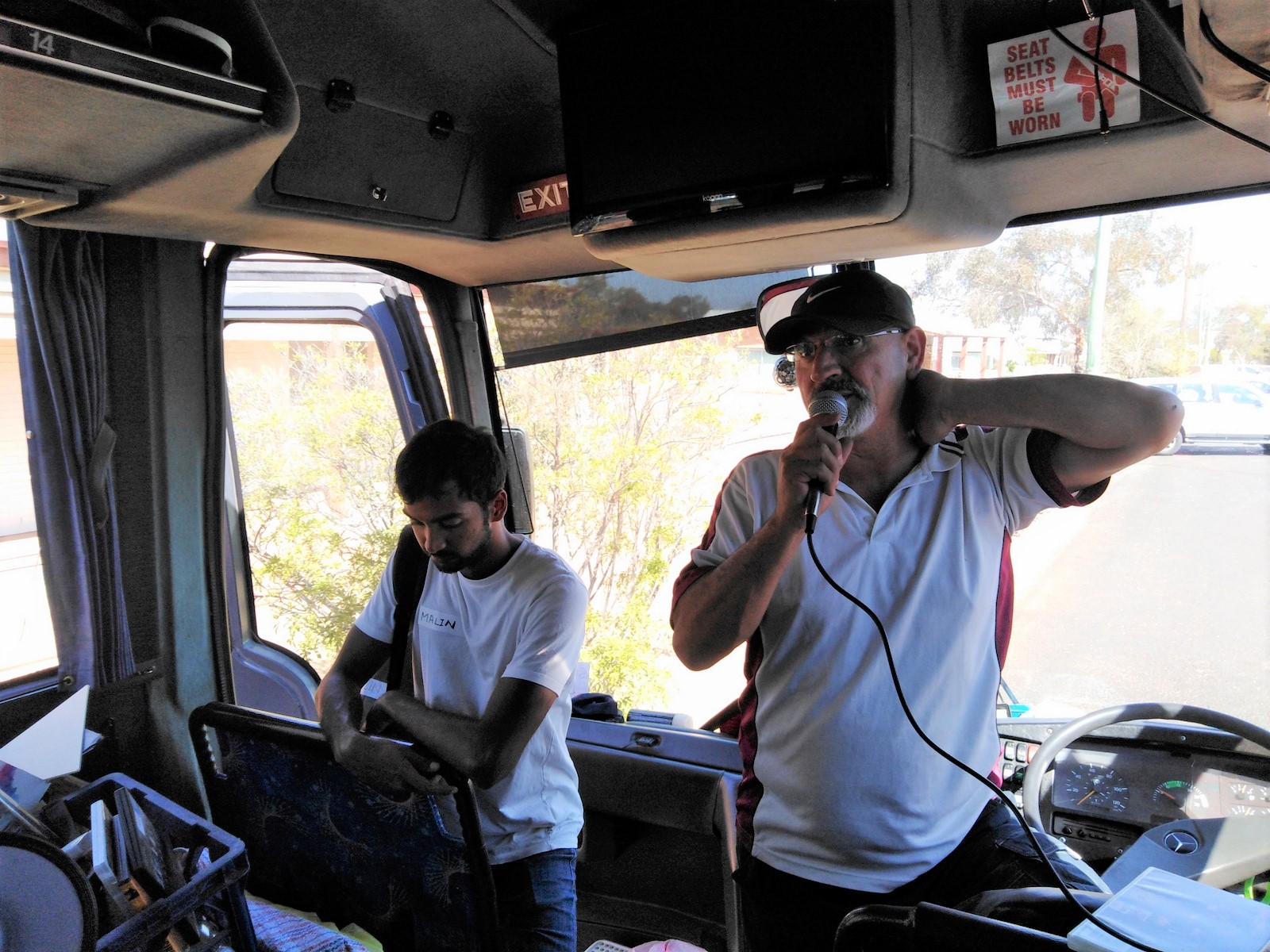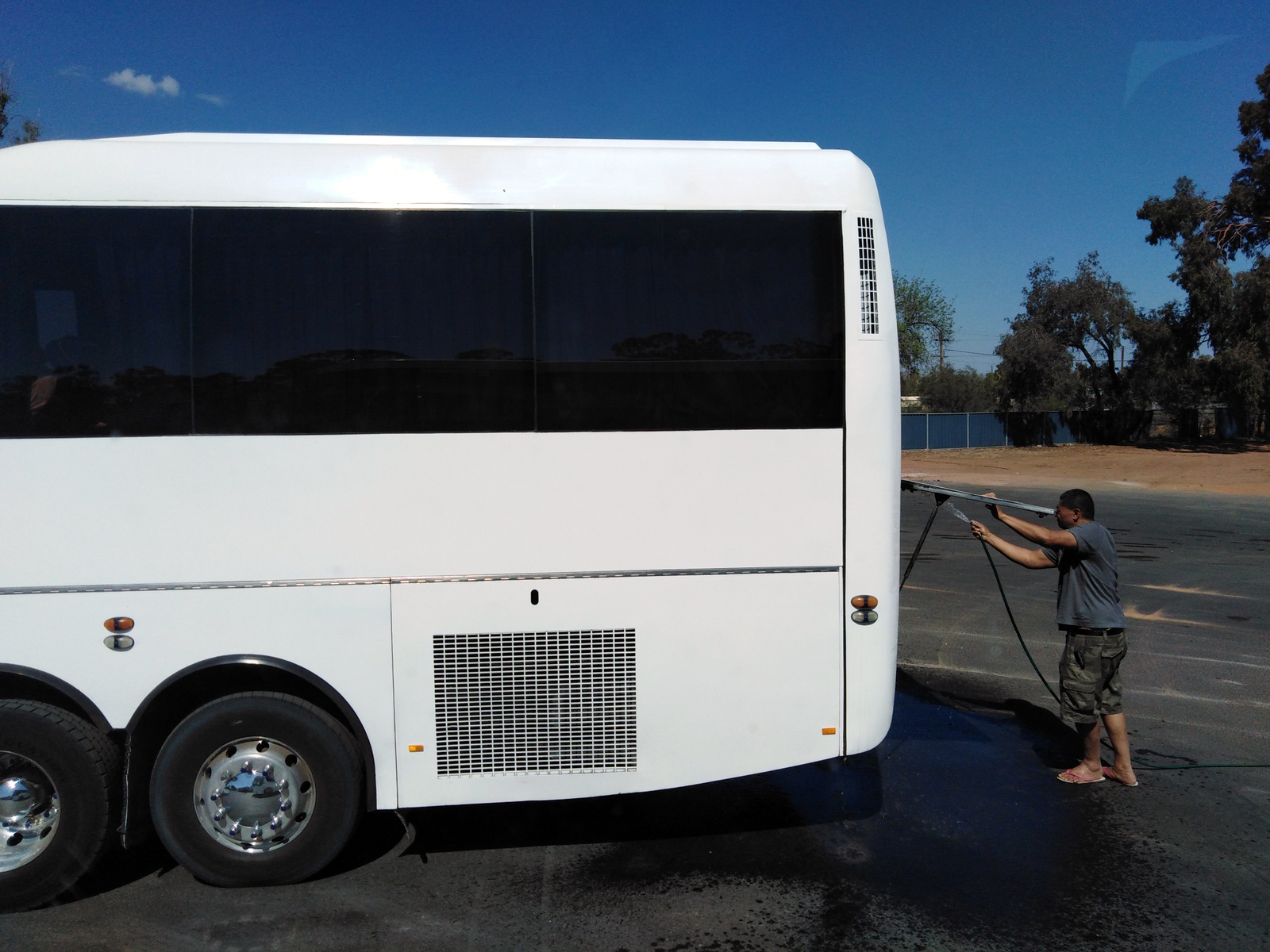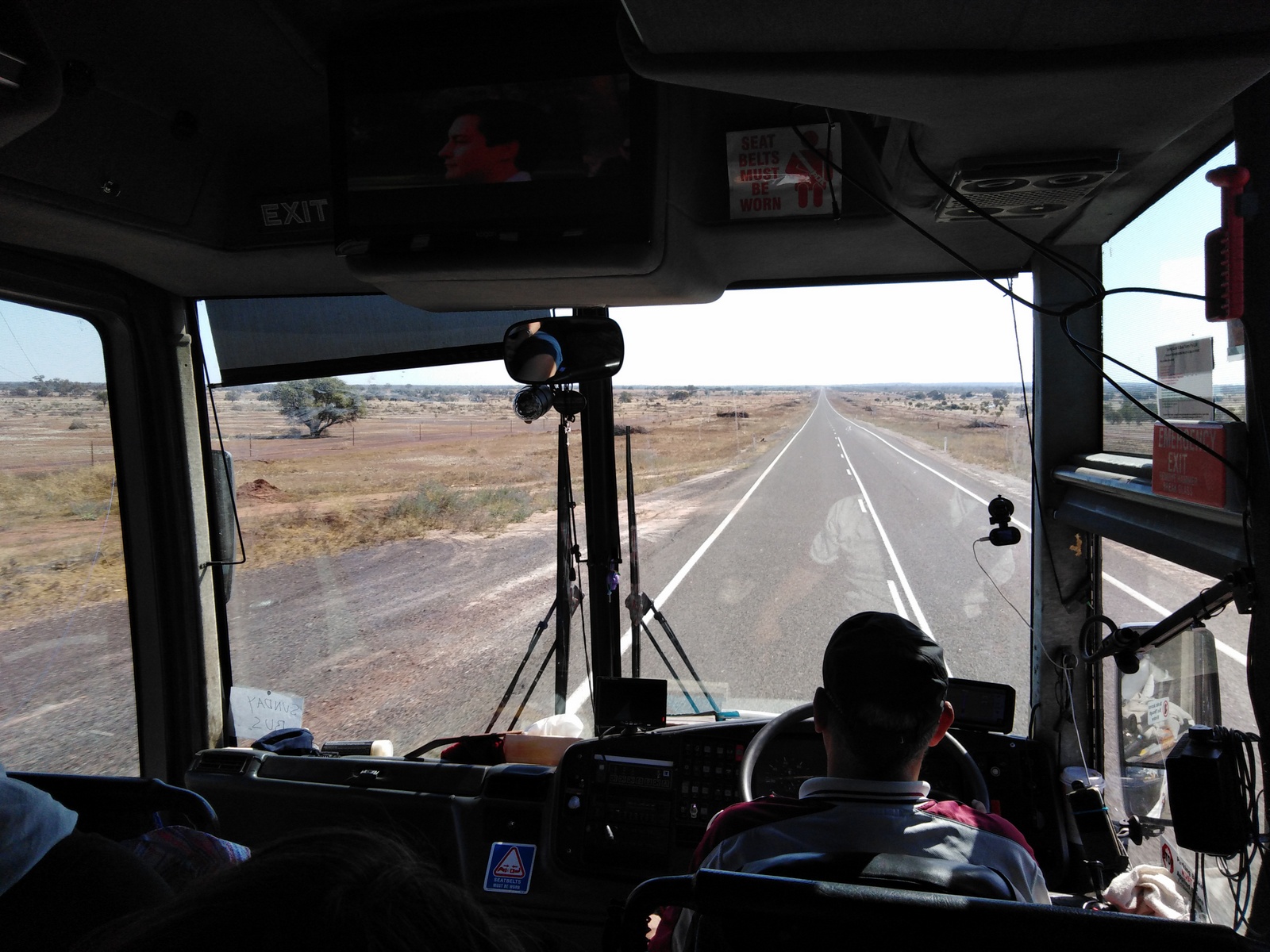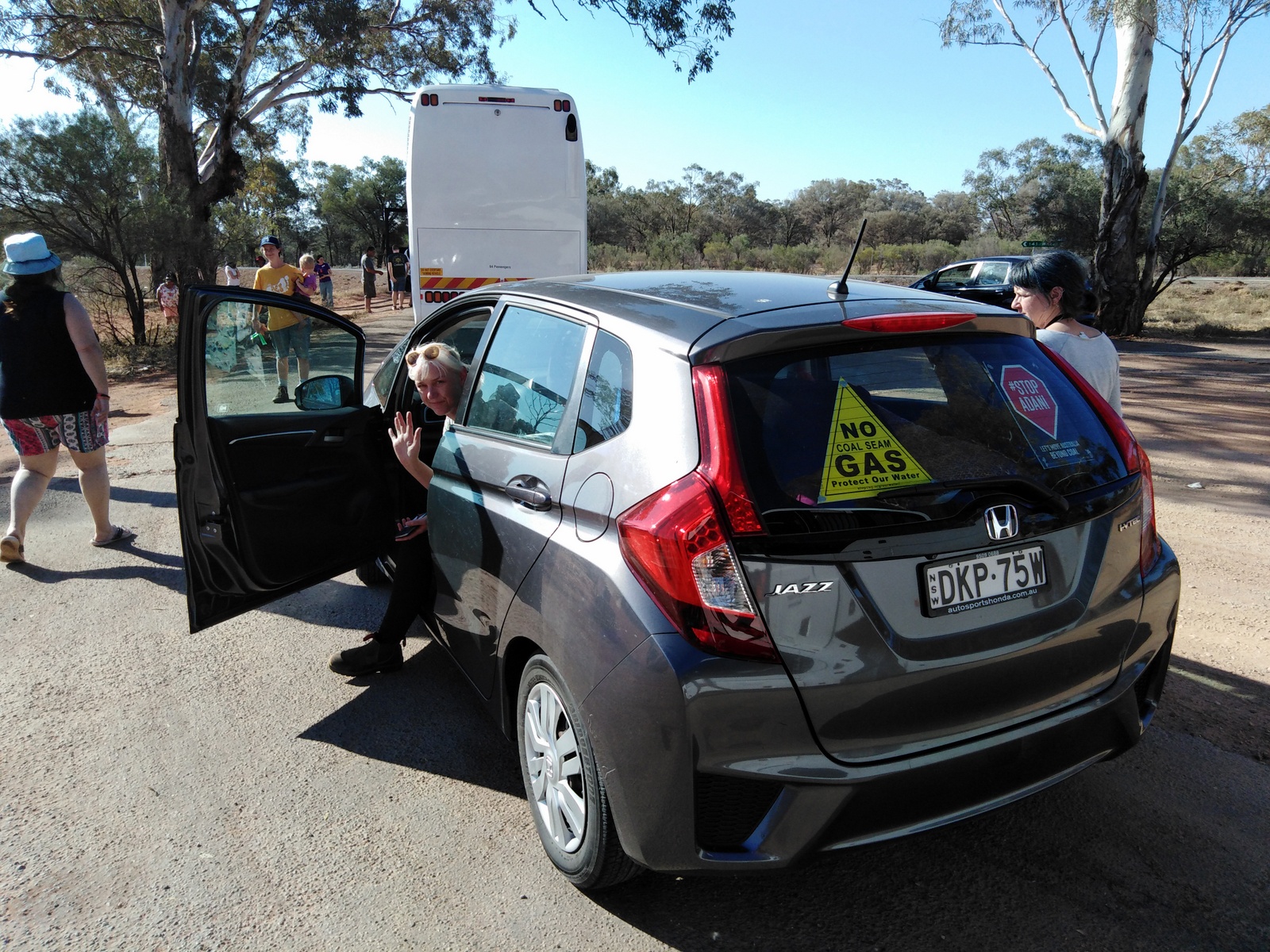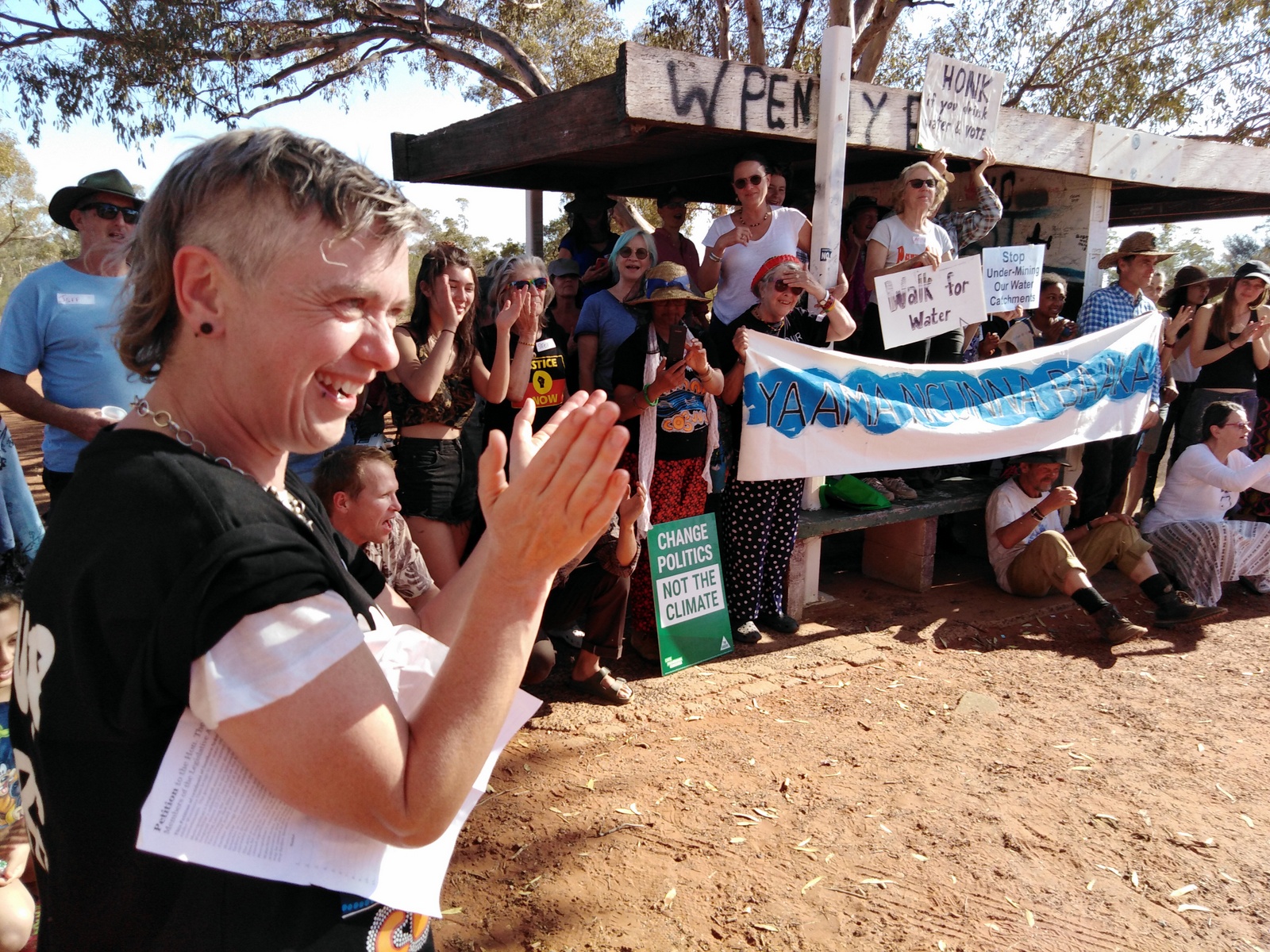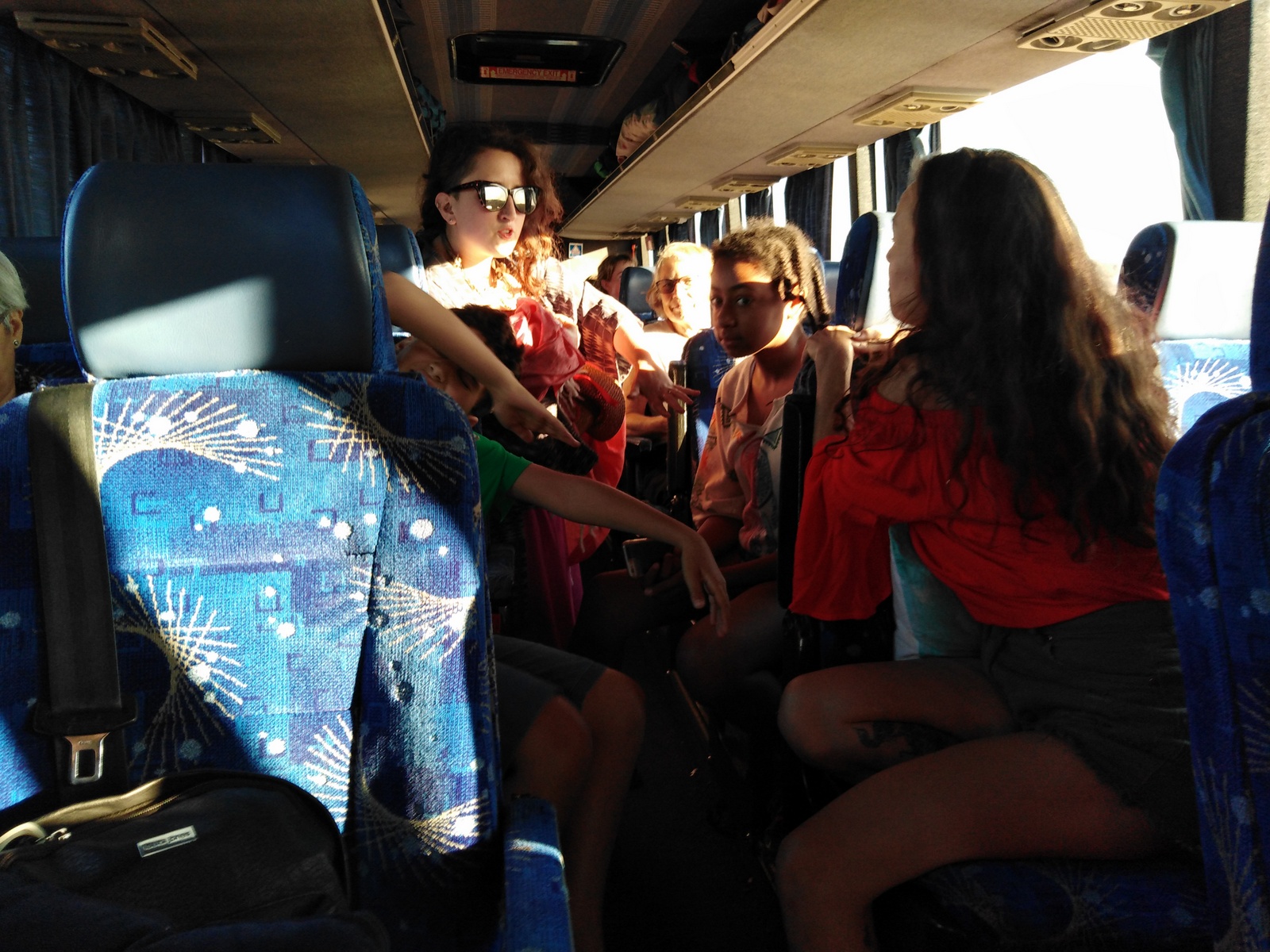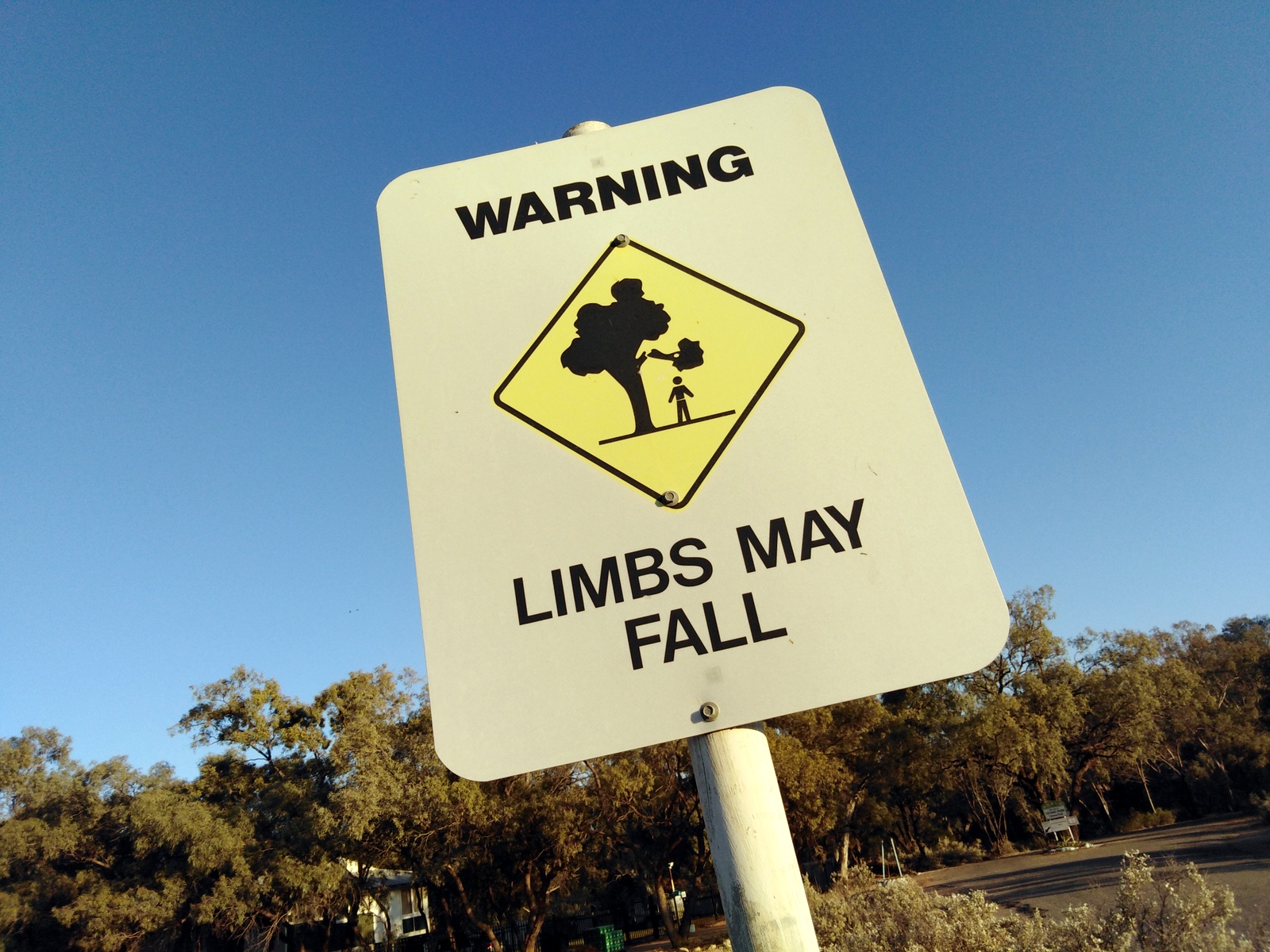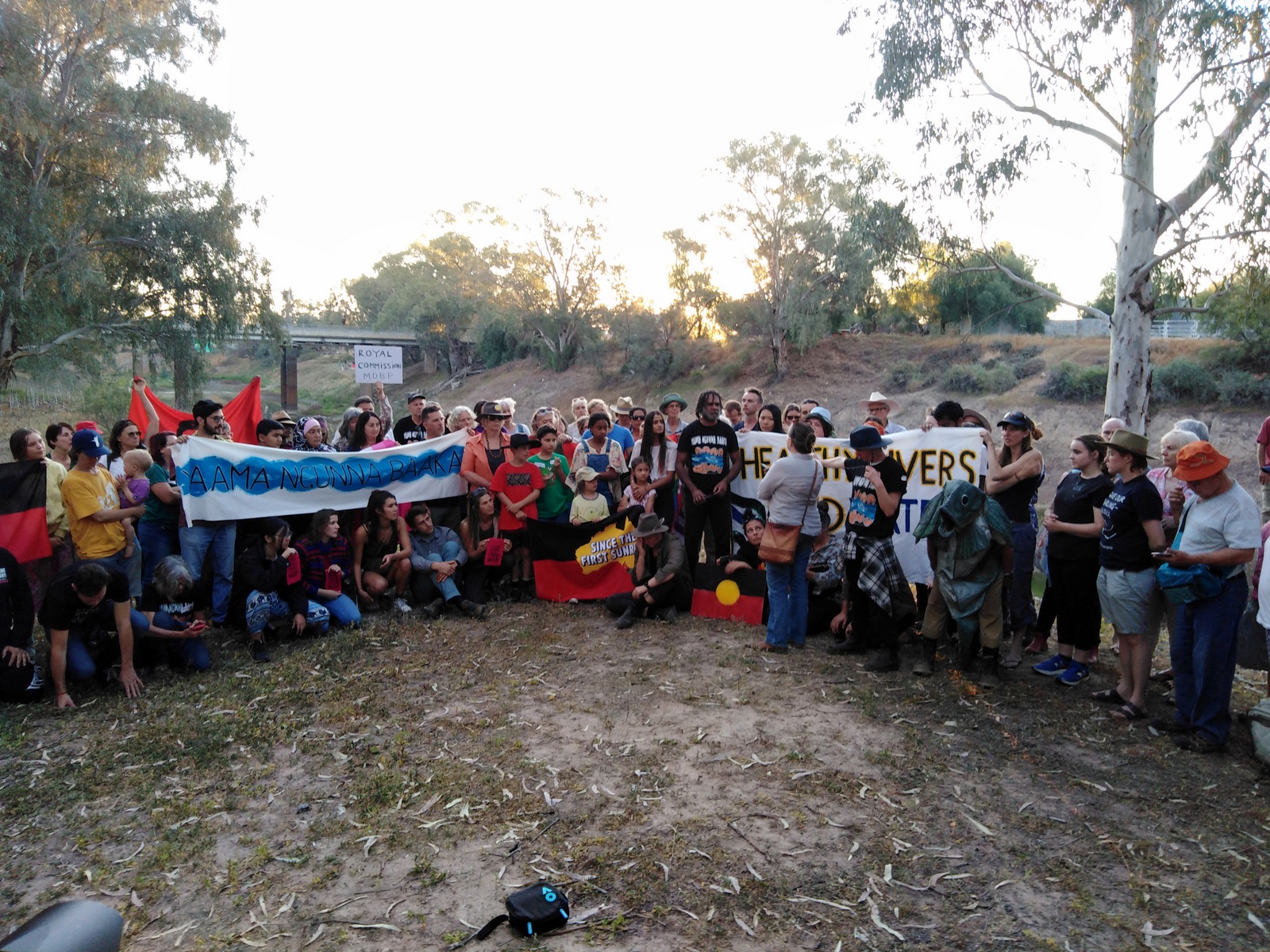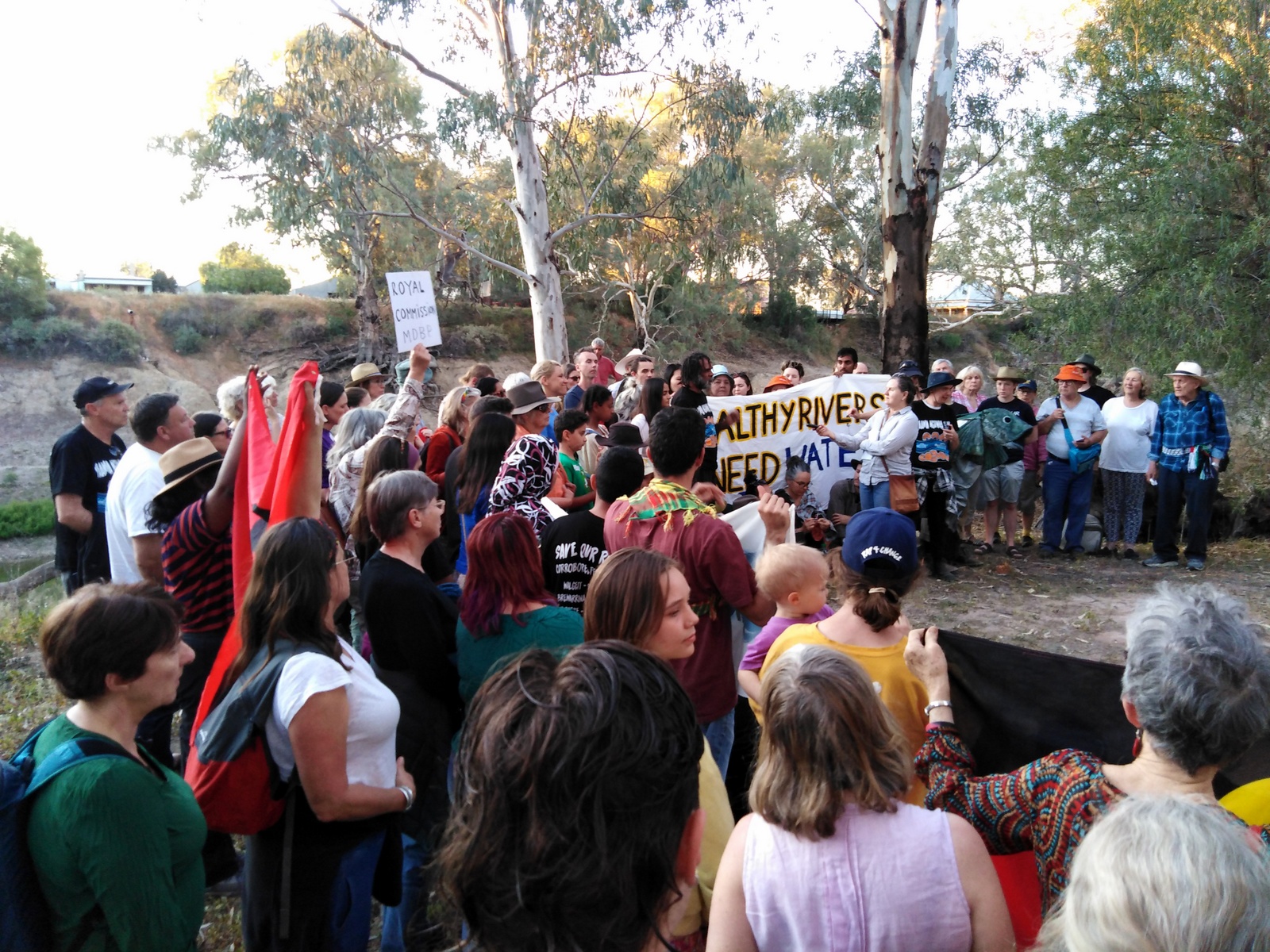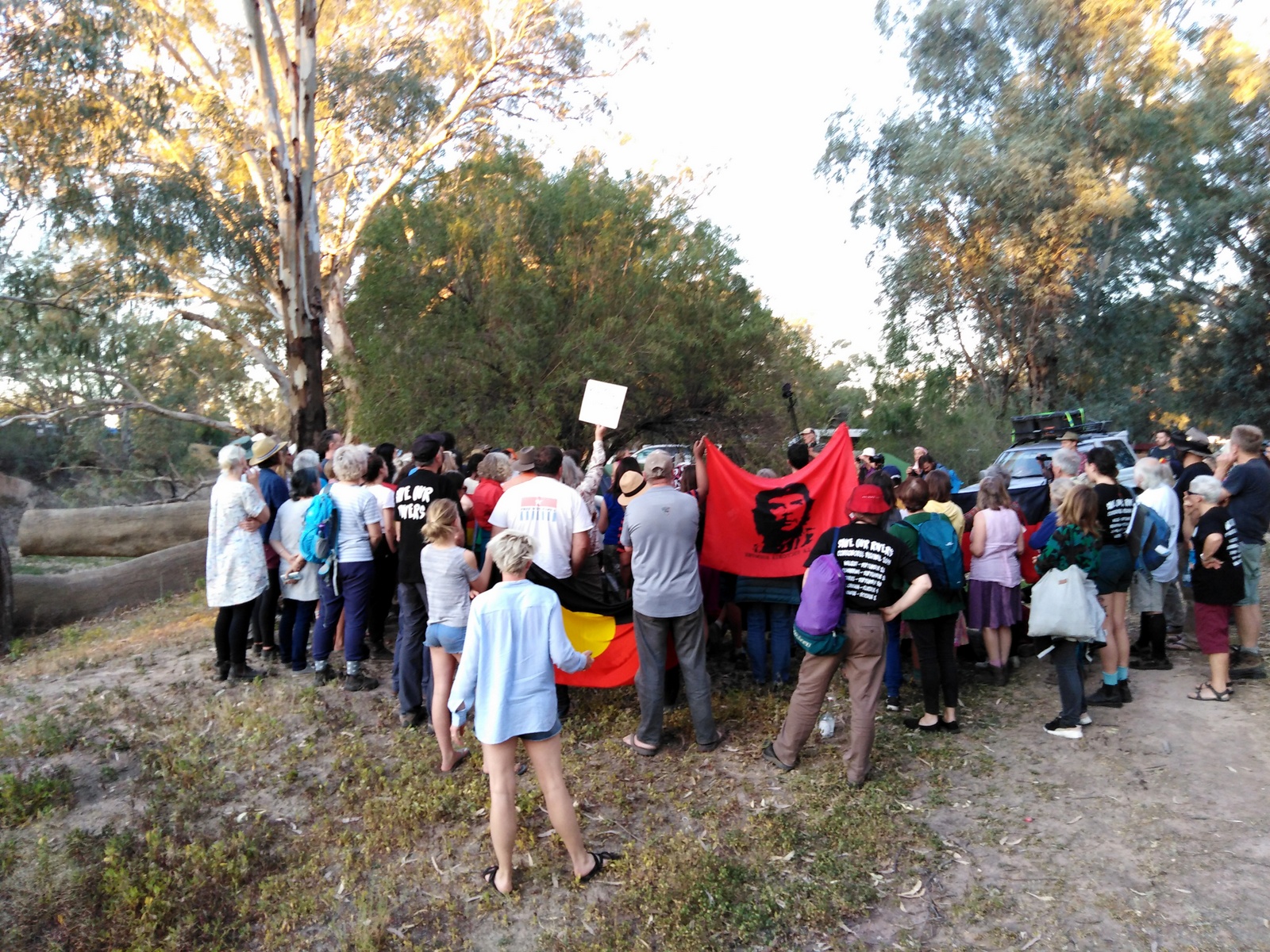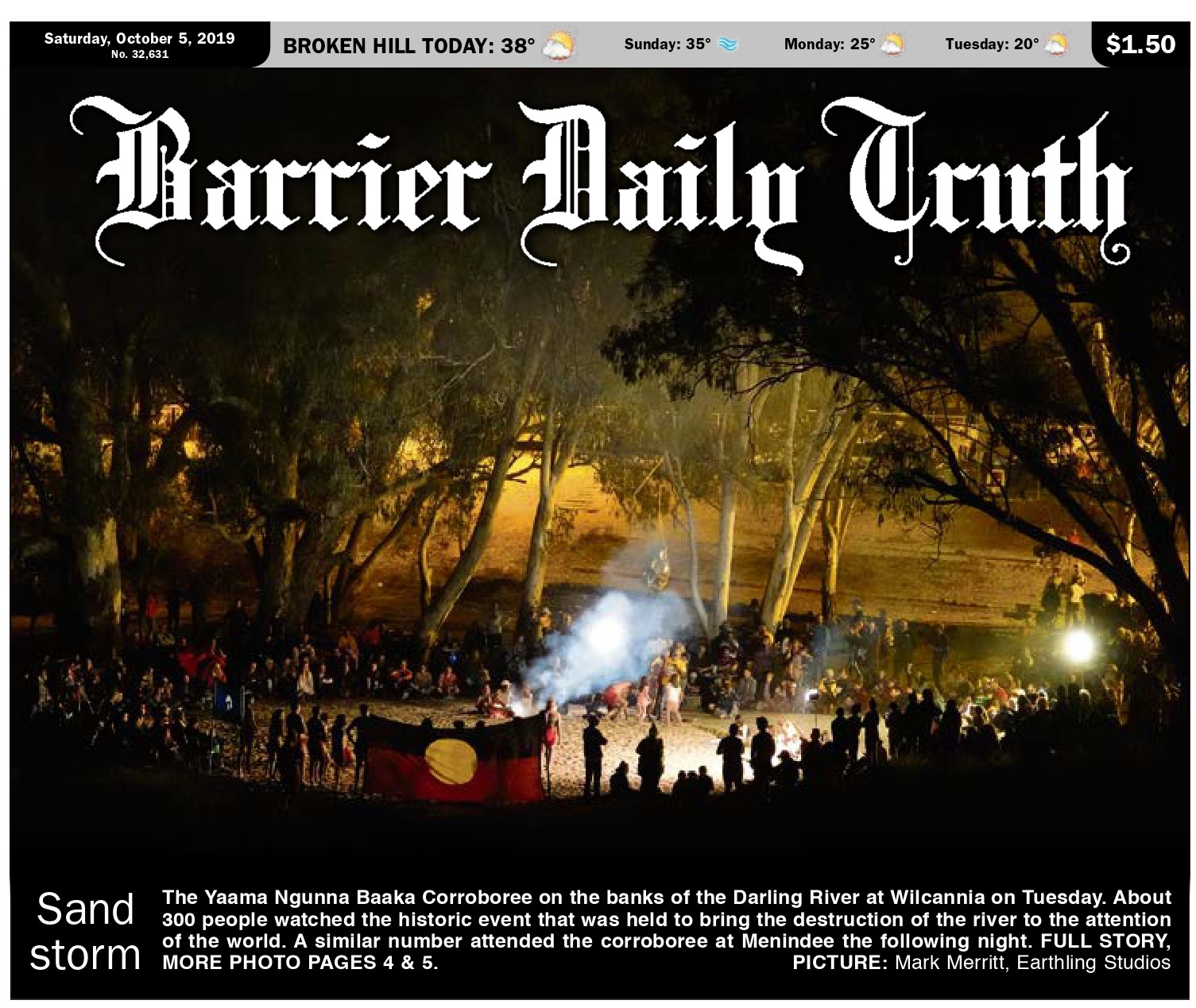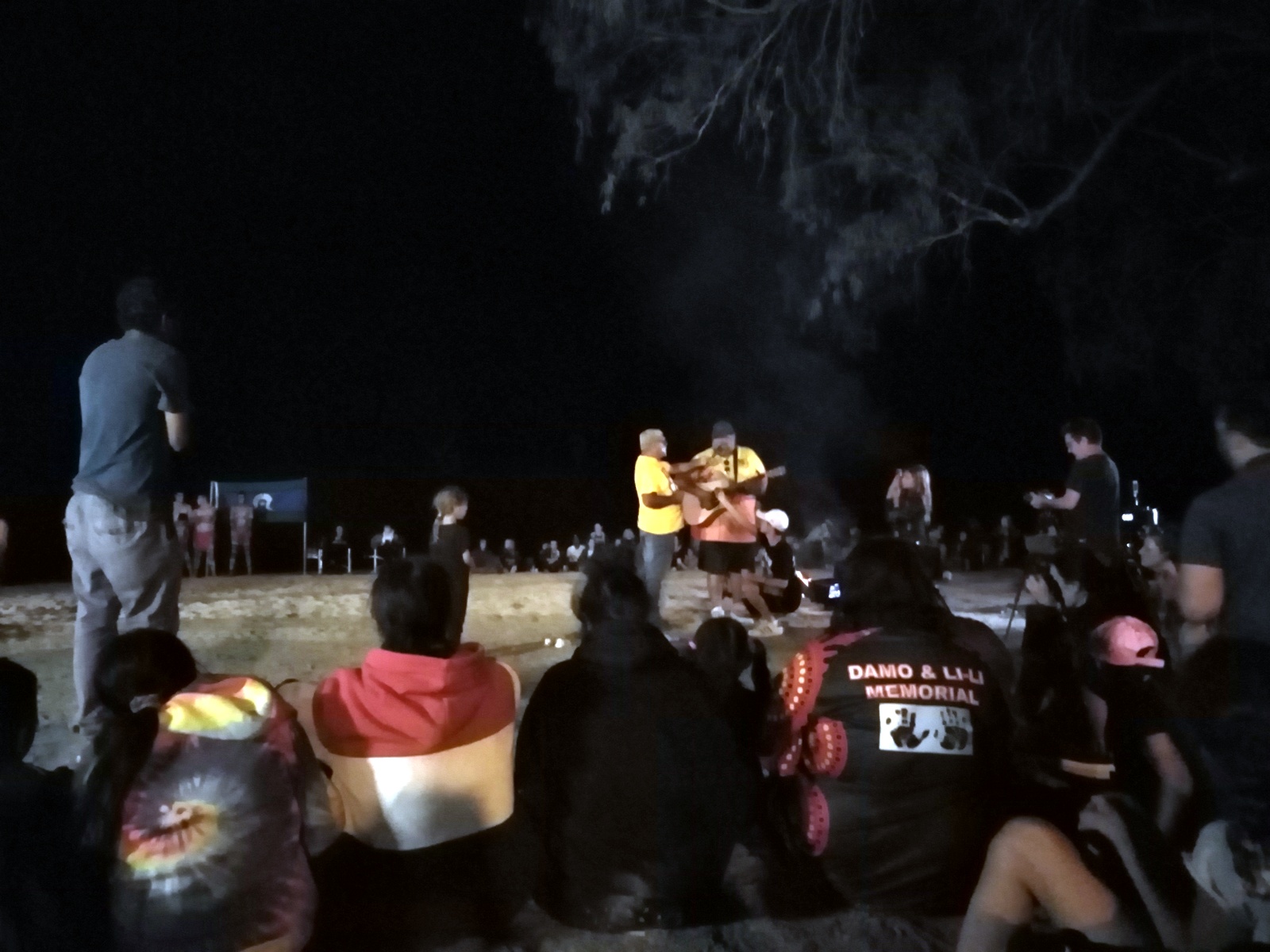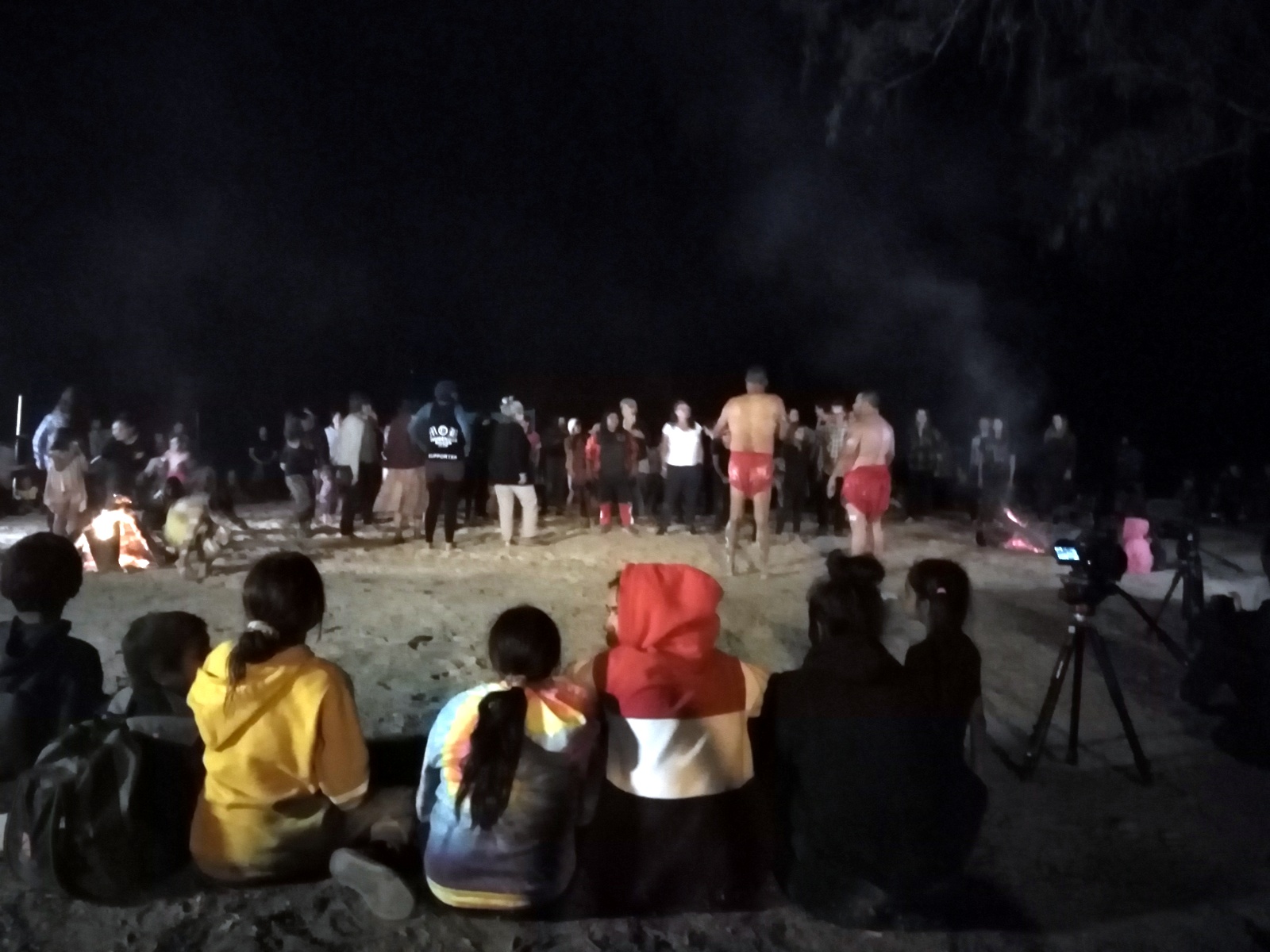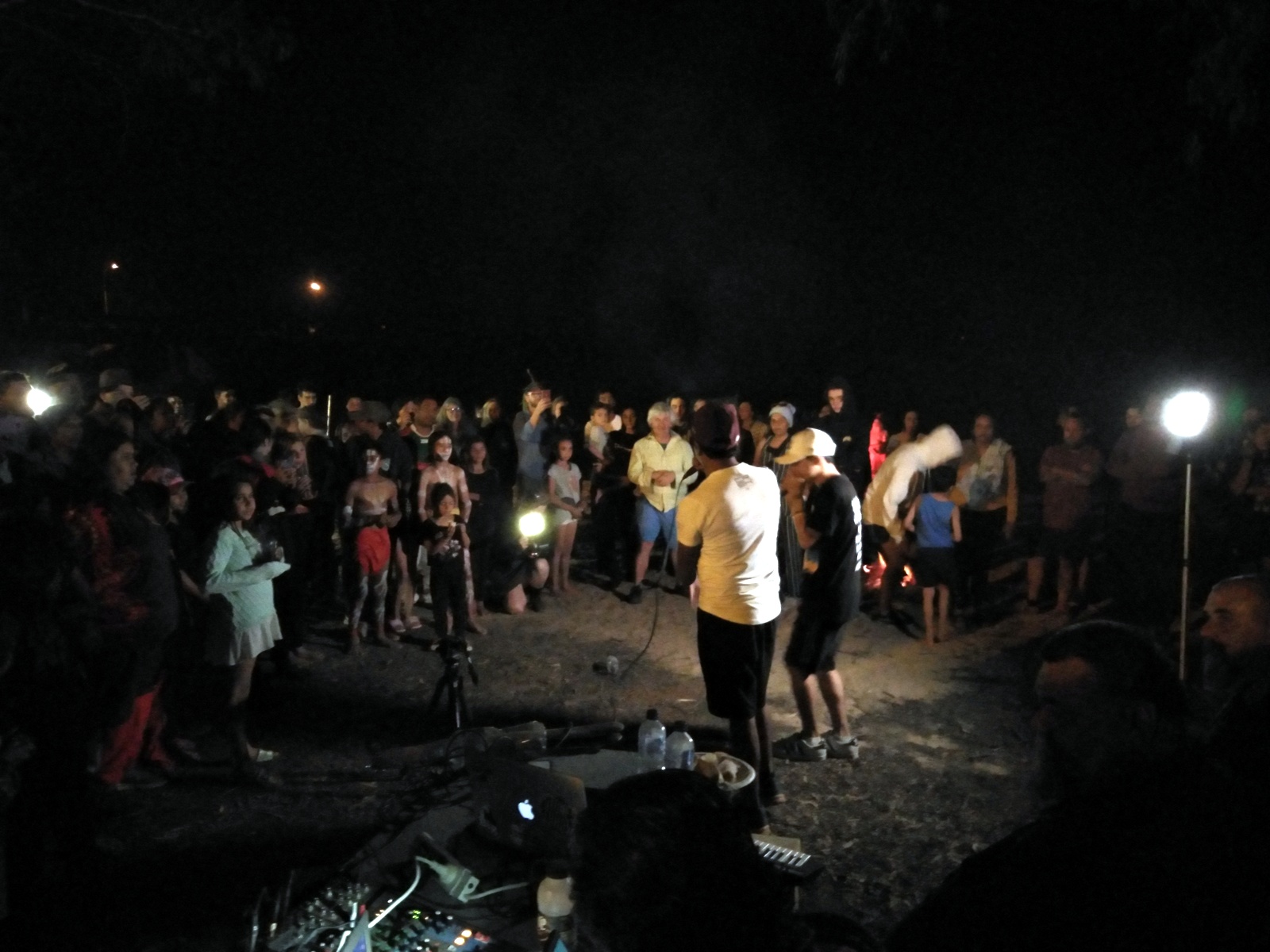
Well-documented corruption on a huge scale has dried out the Murray-Darling river system. Aboriginal communities along the river and its tributaries are calling it genocide. From September 28 to October 4, Aboriginal activist Bruce Shillingsworth helped those communities hold the Yaama Ngunna Baaka Corroboree Festival to educate the world about the crisis. Two buses left from Sydney to follow the festival. Green Left Weekly's Mat Ward, who took his nine-year-old son on the second bus, gives a blow-by-blow account of the trip.
Day 3: Bourke to Wilcannia
5.24am It's not early enough to avoid the fight for the three toilets
I wake early and figure that now is a better time than later to use the toilet, considering that people were complaining there were only three yesterday. I also recall activist Matt Egan saying they'd had to refill the portable toilets for "shitting o'clock", as he put it. I unzip the tent and make a dash for it.
During the seven minutes I'm in the lav, four different people try to hammer the door down. Or maybe it was one person putting on four different voices.
8.00am Breakfast is at Bourke's showgrounds
As we drive to the showgrounds, our driver, George, says: "There's no stop signs or roundabouts in this town." Breakfast is held in what looks like a concrete and metal barn.
8.25am A TV station has given us advice on our media release
Organiser Rachel Evans tells anyone who is covering the tour for media or social media to gather round for a media release briefing. She says multicultural TV station SBS has provided feedback on the provisional release she'd sent.
"The present one is too long," says Evans. "They also say 'Save our rivers' is better than 'Healing our rivers'. They say the press release also needs a call to action."
We're interrupted as an organiser makes an announcement about donating our food to local food banks in Bourke and Wilcannia.
She warns that there will be no electricity at our next two camping stops, Wilcannia and Menindee.
Organiser Joe McDonald announces himself as "minister of silly questions". "If you want to know if the kettle is hot, touch it," he says.
Rachel announces that we will be a media conference on the river bank half an hour after our buses arrive in Wilcannia "with elders up front and banners behind".
8.45am There's a doctor on the tour
On the way to the (overflowing) toilets, I grab a chat with probably the healthiest looking person on the tour. It turns out that Dr Shaun Matthews is a GP, Ayurvedic medicine specialist and yoga therapist.
"I belong to the group Bulwalranga Ran, based in Milton, New South Wales, with uncle Noel Butler," he says. "We run festivals and camps in Aboriginal cultural awareness and ancient traditions that honour Mother Earth.
"I'm writing a book about my journey over the past 30 years of learning about this land and its people.
"I came on the tour because, basically, I wanted to protest government policy regarding our great rivers and support Indigenous communities living in the areas affected."
9.00am Media conferences are happening
Bruce Shillingsworth, his wife Trish and the Aboriginal organisers are speaking to the media.
9.17am It seems there can sometimes be too much help in the kitchen
We offer to help clean the kitchen, but after we scrub the grease out of two ovens, it seems the work has dried up.
The organisers look around to find work for me to do. I carry several heavy pots and pans to the ute outside, but I'm then told to bring them back as that wasn't necessary.
I make myself scarce.
9.25am #WaterForRivers is our preferred hashtag
As our bus drives back to the campsite for a cultural walk, one of our fellow passengers, Amy Elizabeth, tells everyone to use the hashtag #waterforrivers when sharing on social media.
Some of the activists on the bus suggest our driver, George, comes on the cultural walk. "I'll take a rain check," he says, laughing and pointing at the cloudless sky.
9.48am The cultural walk is actually a cultural talk
The building next to where we slept in our (broken) tent last night is home to the 2CUZFM radio station studio and Bourke Aboriginal Cultural Tours, which turns out to be a talk rather than a walk, for us at least.
Run by twin brothers Jason and Joseph Dixon, it started as a Work for the Dole scheme, but showed potential as a viable business.
Joseph starts by showing "tools and artefacts that our people use right across the country".
"We're still making these so they're not historical artefacts," he says.
Rachel Evans moves in with a megaphone so he can be heard.
10.00am There's plenty of humour in this talk
"This is a digging stick that the women would use for digging and sometimes use it on their husbands," says Joseph.
"The bull roarer was our mobile phone but you don't have to charge this," says Jason.
Then, holding a boomerang, he says: "I had one tourist ask, 'When you used it, did it bring the bird back?' I said, 'No, we didn't think of putting shopping trollies on them."
10.15am But there are also serious moments
"We used woomera to throw spears straight," says Jason. "This was for survival, but white people took the word and used it inappropriately for a missile centre to kill people. Totally inappropriate.
"Nardoo seeds we grind down to make breads. It's important to grind the seeds to take the fibre out of it or else, over time, it gets caught in your lungs and you die.
"Whose fault is that? Yours, because you didn't listen. You try to change things, you could die. Same as what's happening with the rivers at the moment.
"We had 60,000 years of nothing going wrong, but in the past 250 years we've had mass destruction, chaos. If they'd just stood and listened the country would be even drought-free for one."
10.30am There's also plenty of emotion as we gather for a group photo
"With support from guys like you, we can make a change," says Jason.
"I was almost in tears last night seeing the amount of non-Indigenous support. So I thank you."
10.40am The twins hug everyone who goes to shake their hand
"I'd like to thank each and every one of you for taking the initiative to come here," says Jason. "This not only affects Aboriginal people - it affects the bloody lot of us."
We say our farewells and board the bus for Wilcannia.
11.27am Green Left Weekly suddenly realises that the bus looks like a subway tunnel
It appears that Green Left Weekly's Coral Wynter - who is used to hawking copies of the paper in places where people find it difficult to get away, like subway tunnels - has realised she has a captive audience.
On the road to Wilcannia, she makes an announcement about supporting Green Left Weekly.
I have a look around, but it seems nobody is looking uncomfortably out of the windows.
11.28am There's some suspicious-looking cake being handed out
Malin, who is helping out with the tour, hands out some hallucinogenic-looking cake, saying "I made it myself". I decline the cake, which turns out to be completely innocuous, but ask him for a chat.
"I'm from Castle Hill in Sydney," says the 27-year-old. "I took a leave of absence from work. I was working in IT for an investment bank, so I took unpaid leave for 12 months to get a better understanding of climate change.
"I'm going to look at the Amazon, but I'd also like to go to the top end of Australia.
"I'm not affiliated with anyone, but I am really passionate about the environment and First Nations justice - particularly climate change.
"The first thing I did was get involved in Extinction Rebellion. I joined Extinction Rebellion and through that I found out about Water For Rivers. Extinction Rebellion took me out of my comfort zone."
Long-time activists have noted that Extinction Rebellion is inspiring new people to take action, rather than the same old faces.
"It was definitely an attraction that Extinction Rebellion were independent," says Malin. "They have 10 core principles and I really liked that.
"I'm a bit sceptical about how well it will permeate the masses, because there are a lot of political people involved and it could be co-opted. There's already been arguments about the police.
"I was organised in the booking of the tour, so came to it quite late, but it's been great to see how big the tour became."
12.30pm Cobar is a mining town
We stop in Cobar for lunch. There's a prominent Aboriginal centre, a gun shop and lots of mining references.
Half the bus piles into the closest cafe, the other half into a Subway sandwich outlet.
1.25pm There's an artist on the bus
While we wait for everyone to come back to the bus, I get talking to fellow passenger Amy Elizabeth, who is based in an arty suburb of Sydney.
"I'm from Canberra but I live in Newtown," she says. "I'm an artist, so I donated an artwork to an art auction for the tour, at Articulate gallery.
"I had a bad back, but my mum heard about Bruce Shillingsworth there and encouraged me to go. She gets very enthusiastic about things."
She laughs.
1.52pm The bus toilet is full already
Our driver, George, announces over the microphone that the toilet is full. "You can go to the toilet but it would come rolling down the aisle," he says.
He asks permission to empty the toilet by the side of the road: "So long as you haven't done number twos, it's environmentally friendly," he says. However, he's not pleased when he does so out in the desert. Instead of liquid, solids come rushing out that make the discharge pipe break.
I get out of the bus to take a look. There's a pile of green excrement lying among the toilet's blue chemicals and George is seeing red. "I told everyone no shitting on the bus," he fumes. "I'll have to chuck that pipe and get a new one."
But after cleaning his hands and lighting a cigarette, he regains the same humour he's shown repeatedly when faced with challenge after challenge. With a wry grin, he turns and says: "Did you see that story on Facebook about the guy who was desperate to go to the toilet on a long bus journey?
"Everyone was saying, 'Just go in a bottle!' But he was saying, 'I can't do that!' But they were insisting: 'Go on, it'll be perfectly fine! Other people have done it!'
"So he says: 'OK, if you insist.' Then he takes down his pants and shoves the bottle up his arse."
I laugh. "See," I say. "It could have been worse!"
2.25pm Some bus drivers like to keep their engines squeaky clean
The driver of the first bus makes us stop at a Caltex service station while he hoses down his engine.
"He's obsessed about dust on his engine," says George.
2.53pm There are occasional flowers in the desert
Patches of purple begin to appear on the road to Wilcannia.
"That's Paterson's curse," says fellow passenger Annie Nielsen, a former science teacher.
"It's a weed."
2.55pm The Barrier Highway to Wilcannia has long, straight stretches
"Like Route 66," says George, the driver.
3.40pm Rest stops are good spots for unusual things
The whole convoy pulls into the red dust of a rest stop on the Barrier Highway to Wilcannia. After peeing in the bush, stretching under the trees, reading all the traveller graffiti and applying ochre to our faces, we unfurl our banners and start practising chanting for the media conference.
Organiser Rachel Evans leads the throng, with chants against big irrigators: "Water for the rivers! Yes we can! No to Chris Corrigan! No not him! No to Peter Harris! Not him either! Water for the rivers! Yes we can!"
3.50pm The chanting contest is on
Rachel Evans announces that it's bus one versus bus two in a competition to see who can come up with the best Water For Rivers chant by the time we get to Wilcannia.
5.20pm The kids are coming up with the best chants
The kids on the bus sing their river for waters chants for the bus one versus bus two competition.
Tour helper Malin announces that we're due to get into Wilcannia in 15 minutes, so we'll have to put up our tents within 30 minutes of arriving.
5.32pm It looks like we might get killed at this campsite
As we pull into Victory Park caravan park in Wilcannia, there's an ominous sign warning about the falling branches of gum trees, otherwise known as widow makers.
5.35pm But the location is beautiful
On my phone, I take a panorama shot of the stretch of the river that runs by the campsite. The Corroboree site is just on the other side of the bridge you can see, where the river becomes drier and choked with weeds.
6.00pm The media conference is spirited
Everyone gathers by the riverside, with Bruce Shillingsworth front and centre. As the chanting dies down, Rachel Evans, standing in front of someone dressed as a giant Murray cod, announces: "We've gone from Walgett, to Brewarrina, to Bourke, to Wilcannia - and we're going to go to Menindee.
"We're here to see the state of the rivers - and what we have found is disturbing. What we are here to do is say 'We want water for the rivers'.
"My name is Rachel Evans, I'm from Water For the Rivers in Sydney. I'm part of the Corroboree festival organising tour, and now you're going to hear from Bruce Shillingsworth, who is leading this campaign."
6.01pm 'We demand that we have the right to clean water'
"Thanks everyone for being here," says Bruce Shillingsworth as the cheers die down.
"Look, my name's Bruce Shillingsworth, I'm a Murrawari and Budjiti man from the north-west of New South Wales. I'm here with a group of people that are travelling with us for the Yaama Ngunna Baaka Corroboree Festival 2019 and I would like to thank everyone for coming here today.
"We're at a place called Wilcannia at the moment. We're here for a performance tonight. But I want to say we've travelled through the river towns. Walgett - we've done the Corroboree there, we've met with the elders and the local people there, it was a big night.
"We've moved on to Brewarrina, we've done the exact same thing, we had a couple of hundred people there as well.
"Last night in Bourke we had about three or four hundred people. It was a magical show, everyone liked it. Our old people were encouraged and our kids were very excited for what we've done.
"But we're here for a specific reason. We're here to get water back into our rivers.
"We demand of our government or those people in leadership that we want water back into our rivers. We demand that they consult with our First Nations people.
"We demand that we have the right to clean water."
6.02pm 'You need to start listening to those voices that are voiceless'
Bruce Shillingsworth continues: "We, as First Nations people, don't want to leave our land and our people, because we are connected to our environment, our waterways, our rivers, our totem system, the things that give us life, which is water, the natural water cycle which helps us to survive in our environment.
"I want to say to the government you need to start listening. You need to start listening to those voices that are voiceless. Those voices in those country towns that we've visited in the last couple of days - Walgett, Bree, Bourke, Wilcannia and those other towns that are on the river banks or on our waterways.
"We are now going to start to stand up and we are going to start to demand that we have got to start fixing our rivers. We are going to fix it as grassroots people and we are going to put pressure on whoever they are, whoever is in charge of leadership.
"We're going to say: 'We're going to make you accountable'. We want a royal commission into the Murray-Darling Basin and all our rivers right across Australia."
6.03pm This is a message to 'leaders all over the world'
Bruce Shillingsworth continues: "The drying up of our rivers is affecting our First Nations people. It's so severe that our people are now starting to suffer. The health problems in our communities are now starting to show. High rates of suicide. Dialysis machines. Our kids have sores and are suffering from drinking the poor water that's in our communities.
"The drinking of bore water is not very good for our communities. It's got a high proportion of salt, of sodium, so that's not very healthy.
"We have a right to clean drinking water. So we're here to go along the river and send a message, not just to the leaders of this country, Australia, but to leaders all over the world. We are now going to stand our ground and we are going to protest and we are going to do whatever we want to get you guys to listen to us."
His speech is greeted with huge cheers and applause.
7.36pm The generosity of Aboriginal people is astounding
As we walk through the dark into the Corroboree site's entrance, at the top of a natural amphitheatre, local Aboriginal people welcome us with waves and smiles.
A non-Indigenous woman in her 20s, who is travelling with her young daughter in the car convoy, sweetly replies: "Hi! Thank you for having us!"
The locals are clearly in bad health, yet they are welcoming the non-Indigenous people who have collectively ravaged their health. It is an act of unbelievable forgiveness and generosity.
Wilcannia is suffering from power cuts and my mobile phone's camera is suffering in the poor light. Activist Mark Merritt takes a far better photo of the Corroboree site that makes the front cover of local paper, the Barrier Daily Truth (above). The ABC films some great footage of the dancers resplendent in ochre.
Bruce Shillingsworth takes the microphone. "Tonight is special because you're all here," he says, to huge cheers. "We're going to stop the big dam! We, as Aboriginal people, are going to take back our land take back our rivers! I want to say welcome, welcome, welcome, to all our non-Indigenous brothers and sisters."
A ravaged man's voice from the top of the amphitheatre yells out: "We're all together! One voice!"
Bruce Shillingsworth replies: "Repeat after me! What do we want? Baaka!"
The crowd joins in.
8.00pm Wilcannia has an extremely catchy songwriter
Local singer-songwriter Leroy Johnson takes the microphone, to cheers from the crowd.
"I'm from just 500 metres up the river here," he says. "I'm going to sing for you the song 'No Baaka, no Barkandji'.
"The lyrics are very simple, so you can sing along. It's about our connection to the river."
The crowd join in for the whole song. It's so catchy, I'm singing it for days.
8.25pm Audience participation is hilarious for everybody
Natural comedian Peter Williams, the senior dancer at Waradah Aboriginal Centre, thrills with his singing in Wongaipuwan and raises more laughs with his five children, who are as mischievous as he is.
Then, in the grand tradition of taking the piss out of white people trying to dance (who can forget former British Prime Minister Theresa May's Maybot?), the non-Indigenous are invited to get up and join in.
"If you put your hands the wrong way," Williams tells the women, as they try to imitate emus, "that means you're a man."
I join in with the men as we haplessly try to imitate kangaroos. The locals, and non-locals, find it all hilarious.
8.40pm A legendary song is revived
Murruwarri rapper Dobby, who has managed to keep his stage clothes gleamingly white in the dark dirt, takes to the microphone and announces that he has a very special guest.
"Where's Lendal King?" he says. "Lendal King from the Wilcannia Mob? Come on down!"
The Wilcannia Mob's debut single, "Down River", was an underground hit in 2002. International rap star M.I.A. also got them to sing it in a reworking of the song on her 2007 album, Kala.
Eventually King, looking shy and hesitant, appears. But as soon as Dobby starts beat-boxing, the pair pull off a faultless rendition.
Lendal is my name and I like to do back flips
Listen to the words that come from my lips
Jump off the bridge and I play the didge
When I catch a fish I put it in the fridge
When it’s really hot we go the river and swim
When we go fishin’ we catchin’ a bream
When the river’s high we jump off the bridge
When we get home we play some didge
Dobby then asks if any kids want to get up and beatbox. No one is forthcoming, so Tony Polson, a wild-looking non-Indigenous audio engineer who is travelling on our bus, obliges with a clown-like performance. It has all the bus travellers in stitches, but the local Aboriginal teens look bemused by this white man who appears to have no dignity.
Dobby, despite struggling with a distorted sound system, wins the crowd over yet again. The drummer and rapper, who studied piano as part of his music degree, switches things up once more with a mini electronic keyboard that he jams on as Tony Polson clowns around.
I later ask Dobby about how he got Lendal King to perform. "I couldn’t pass up the opportunity to hear him perform those same words from 18 years ago, about a time when the river was full and healthy enough to swim in," he says. "It was an historic and powerful moment to hear him perform!"
As we leave the amphitheatre, the local Aboriginal people, generous as ever, hug us and wave goodbye.
Read about Day 4 here.
Comments? Criticisms? Corrections? Email criticalfilms@gmail.com
[Mat Ward has been writing for Green Left Weekly since 2009. He also wrote the book Real Talk: Aboriginal Rappers Talk About Their Music And Country and makes political music.]
